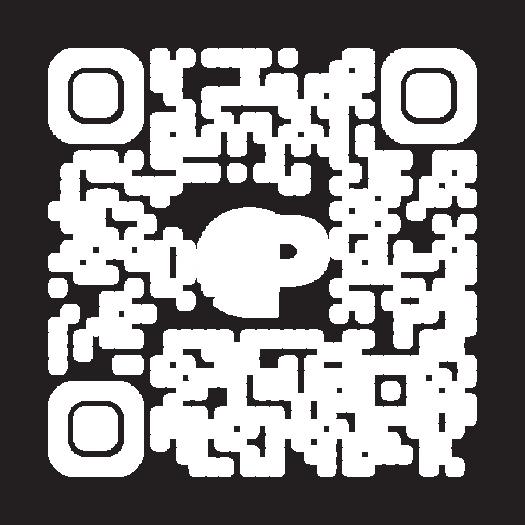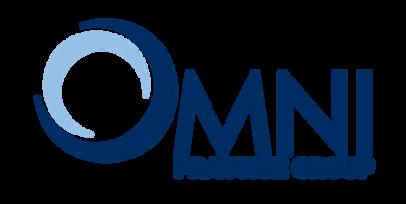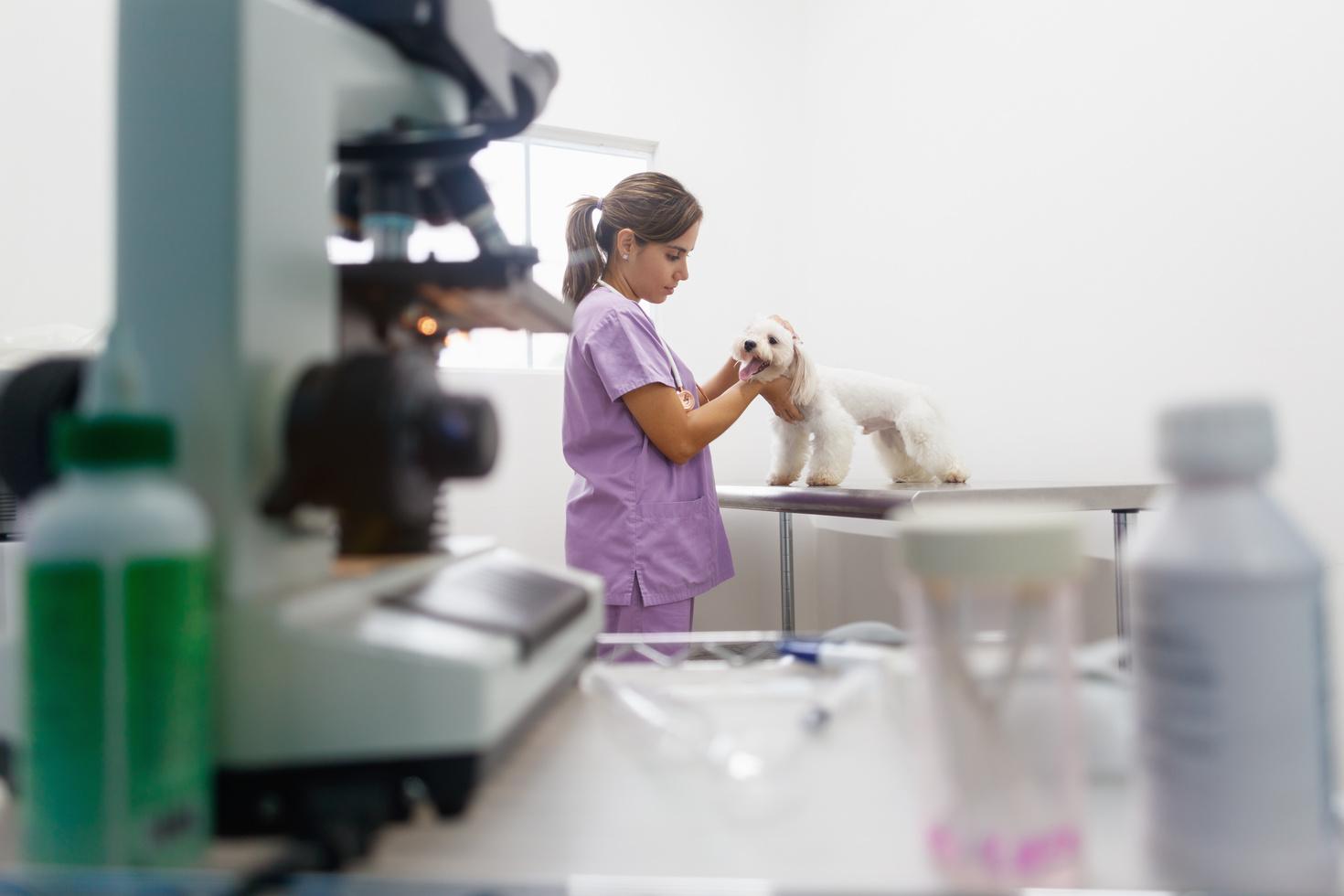VETERINARIAN California





7
New Laws for 2025
January 21, 2025 | 12:30–1:30 PM (1 CEU)
January 23, 2025 | 5:30–6:30 PM (1 CEU)
For more information, see page 8. Free






7
New Laws for 2025
January 21, 2025 | 12:30–1:30 PM (1 CEU)
January 23, 2025 | 5:30–6:30 PM (1 CEU)
For more information, see page 8. Free

CVMA Spring Seminar in Yosemite
April 4–6, 2025 (12 CEUs)
For more information, see page 14.

CVMA Equine Medicine Seminar in Yosemite
April 4–6, 2025 (12 CEUs)
For more information, see page 30.

CVMA Pacific Veterinary Conference in Long Beach
June 27–30, 2025 (28.5 CEUs)
For more information, see page 22.

Save the Date! CVMA Fall Seminar in Monterey
October 10–12, 2025 (12 CEUs)

Registration for all CVMA events can be made online by logging onto cvma.net. If you need assistance with your registration, please reach out to the CVMA at staff@cvma.net or 800.655.2862.
CVMA-AFFILIATED PROGRAMS

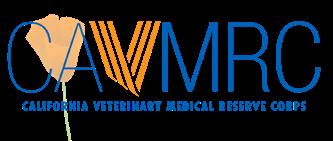

California Veterinarian (ISSN 00081612) is published bi-monthly by the California Veterinary Medical Association, e-mail: staff@cvma.net. California Veterinarian is an official publication of the California Veterinary Medical Association. Annual subscription rates to non-members: $50 U.S., $60 Canada/Mexico, $70 overseas. Price per single copy: $10 current year, $12 back issues. Periodicals postage paid at Sacramento, CA and at additional mailing offices. POSTMASTER: Send address changes to California Veterinarian, 1400 River Park Dr., Suite 100, Sacramento, CA 95815-4505. Phone: 800.655.2862
The CVMA and California Veterinarian assume no responsibility for material contained in articles and advertisements published, nor does publication necessarily constitute endorsement by them. ©2024
The Publication of the California Veterinary Medical Association
Publisher Dan Baxter
Managing Editor Taryn DeOilers
Editor Kristen Calderon
Publication Designer Marissa Collier
Classified Advertising Laura Phillips
BOARD OF GOVERNORS
President Dr. Jennifer Hawkins
President-Elect Dr. Peter Bowie
Member-at-Large Dr. Jodi Woods
Members
Dr. Heather Bessoff
Dr. Kelly Byam
Dr. Patrick Connolly
Dr. Eleanor Dunn
Dr. Inez del Pino
Nicole Dickerson, RVT
Dr. Misty Hirschbein
Dr. Diane McClure
Dr. Teresa Morishita
Dr. Shari O'Neill
Dr. Kevin Terra
Dr. Laura Weatherford
Dr. Brent Wooden
Treasurer Dr. Ron Kelpe
Chair, House of Delegates Dr. Georgina Marquez
STUDENT REPRESENTATIVES
University of California, Davis Alexis McBride
Western University Samantha Rosander
CVMA STAFF
Executive Director Dan Baxter
Director of Member Services Kristen Calderon
Director of Communications Taryn DeOilers
Director of Conferences and Events Sarah Erck, CMP
Director of Regulatory Affairs Grant Miller, DVM
Director of Finance Thomas F. Palmieri, CPA
Membership and Student Services Manager Laura Phillips
Finance Coordinator Sharmele Browne
Design & Print Manager Marissa Collier
Conference Speaker Coordinator Lily Briggs
Conference Expo Coordinator Erica Ferrier
Membership Coordinator Jennifer Smith
Receptionist Mary Young
DISPLAY ADVERTISING
Please contact Erica Ferrier at 916.649.0599 ext. 15 or email eferrier@cvma.net.
Want to comment on what the CVMA is doing or writing about? Send an email to comments@cvma.net or call 800.655.2862. Your thoughts and opinions matter to us. The CVMA is YOUR association—let us hear your voice!

As we enter the holiday season and wind down another year, I thought I would take a moment to highlight three important, member-related items on which we have been working here at the CVMA home office.
First, I am pleased to announce that in 2025, we will be opening up a new voting position on our Board of Governors dedicated to early career veterinarians. This is the second new position to be commissioned in the last several years, following our creation of a dedicated RVT voting position on our Board back in 2022 (we are the first—and, to my knowledge, still the only—state VMA to do the latter). The new Early Career DVM position is designed to serve as a pipeline to leadership for DVMs no more than seven years removed from veterinary school. To expand exposure to and participation by a larger group of CVMA members, the Early Career DVM slot will be a one-term position (the other Board slots allow for two consecutive, three-year terms) that will not count against future CVMA Board service. I want to thank the Board of Governors for having approved this new position at its July meeting, and for ratifying the necessary Bylaws change at its most recent meeting in October. With these procedural steps having been accomplished, we anticipate having our first Early Career DVM Board member in place in time to begin our next fiscal year!
Second, I am equally happy to tell you that the CVMA Board has approved the launch of a new CVMA Membership Committee. This eleven-member committee will serve under the guidance of our Director of Member Services, Kristen Calderon, and will be a nerve center and sounding board for memberfacing initiatives, notably including member benefits development. In the last several years, our fleet of
member benefits has been significantly expanded, and both our appointment of Kristen to this role and the launching of this new committee will ensure that our member benefits remain relevant and responsive to the needs of all categories of CVMA member. Committee members will also be encouraged to provide feedback on other member-relevant issues, including member surveying and the CVMA’s marketing efforts, and may possibly be called upon to attend local association meetings on the CVMA’s behalf.
Finally, and on a similar theme, we plan to dedicate our joint Board of Governors/House of Delegates Leadership Forum in January to a discussion of our member benefits—those we have, those we don’t have, and those that our membership might want. That discussion will be informed by results of the member benefits survey that we issued last month. If you haven’t yet completed that survey, please consider this my personal appeal for you to do so! Your comments will go a great distance towards helping frame our benefits offerings in 2025 and well beyond. So, thank you in advance!
All of these initiatives are part of our continuing effort to bring more to the table for our members, and to ensure that we are adequately addressing the needs of the veterinary profession. We take our responsibility to the veterinary community very seriously and are always working to provide “news you can use” to those who trust us with their membership, including our benefits programs.
Happy holidays, all!

Dan Baxter Executive Director
DECEMBER 4–5, 2024
VISC Board/Strategic Planning Meeting
DECEMBER 10, 2024
Legislative Subcommittee Meeting

JANUARY 14–16, 2025
Veterinary Medical Board Meeting
JANUARY 31
–FEBRUARY 2, 2025
CVMA Leadership Forum/ Board and House Meetings
MARCH 5–6, 2025
VISC Board/Claims Review Meeting
Reflecting on 2024, the CVMA is proud to commemorate this year with several big legislative wins for the veterinary community (including the passage of our own sponsored bill, SB 1233!—see page 10). We are also celebrating the success our 2024 continuing education events, including our first-ever Food Animal Medicine Seminar. We’ve added a multitude of new member benefits and are stepping into the new year with exciting changes on the horizon for our membership. The CVMA staff is ever-grateful for the opportunity to serve and strengthen the veterinary profession and animal wellbeing in California. We wish our members and their loved ones a wonderful holiday season, and we anticipate another fantastic year in 2025!
The CVMA’s Board of Governors (BOG) met for its annual strategic planning session in October during the CVMA’s Fall Seminar in San Diego. During this meeting, the BOG finalized its 2025-2026 Action Plan, a strategic planning document enumerating the CVMA’s goals for the next two years. To view the CVMA's new Action Plan, visit the CVMA website, hover over the About Us tab, and click 2025 Action Plan.
MARCH 22, 2025
CVMA Board of Governors Meeting
APRIL 15–17, 2025
Veterinary Medical Board Meeting
= HYBRID OR VIRTUAL EVENT
In the past, the CVMA has conducted an extensive salary survey once every three years along with additional occasional membership surveys. While these surveys provided valuable insights, we understand and acknowledge the survey fatigue many of you may experience. To help alleviate this fatigue, we have decided to significantly scale back both surveys, focusing only on the essential information that will help us (1) enhance membership satisfaction and (2) offer the most relevant salary feedback that our members seek. The 2024 survey was sent out in late October. If you did not receive one and would like to participate, please contact Kristen Calderon by email at kcalderon@cvma.net.
Have you recently moved, changed practices, or started using a new email address? The CVMA is transitioning our membership data to a new Association Management System (AMS). This upgrade aims to streamline the membership renewal process for individual members, practice owners, and managers. We also anticipate improved member-facing communications, ensuring you receive information that aligns with your interests. To help us transfer accurate membership data, please log onto your account at cvma.net and review your profile information by clicking “My Personal Information.” Thank you!
Members are the heart of the CVMA
c Associate and Relief Veterinarian
c Atlantic Veterinary College, University of Prince Edward Island, Canada
c Companion animal emergency/critical care and HQHVSN/shelter medicine
When I was little, I wanted to be, according to what I wrote in kindergarten…a “vertinaren!”
The best advice I ever received was always have something in life to look forward to.
My mentor is Dr. Susan Monger. She introduced me to the world of surgical field medicine and remains a close friend.
In my free time, I like to take my horse and dog on long trail rides through the beautiful old oaks of the Central Coast.
My most rewarding professional moment was realizing that I had performed over 25,000 sterilization surgeries.
My morning ritual is sipping hot coffee with a cat on my lap.
A cause close to my heart is reproductive freedom for women.
A book that changed my life is The Four Agreements by Don Miguel Ruiz.
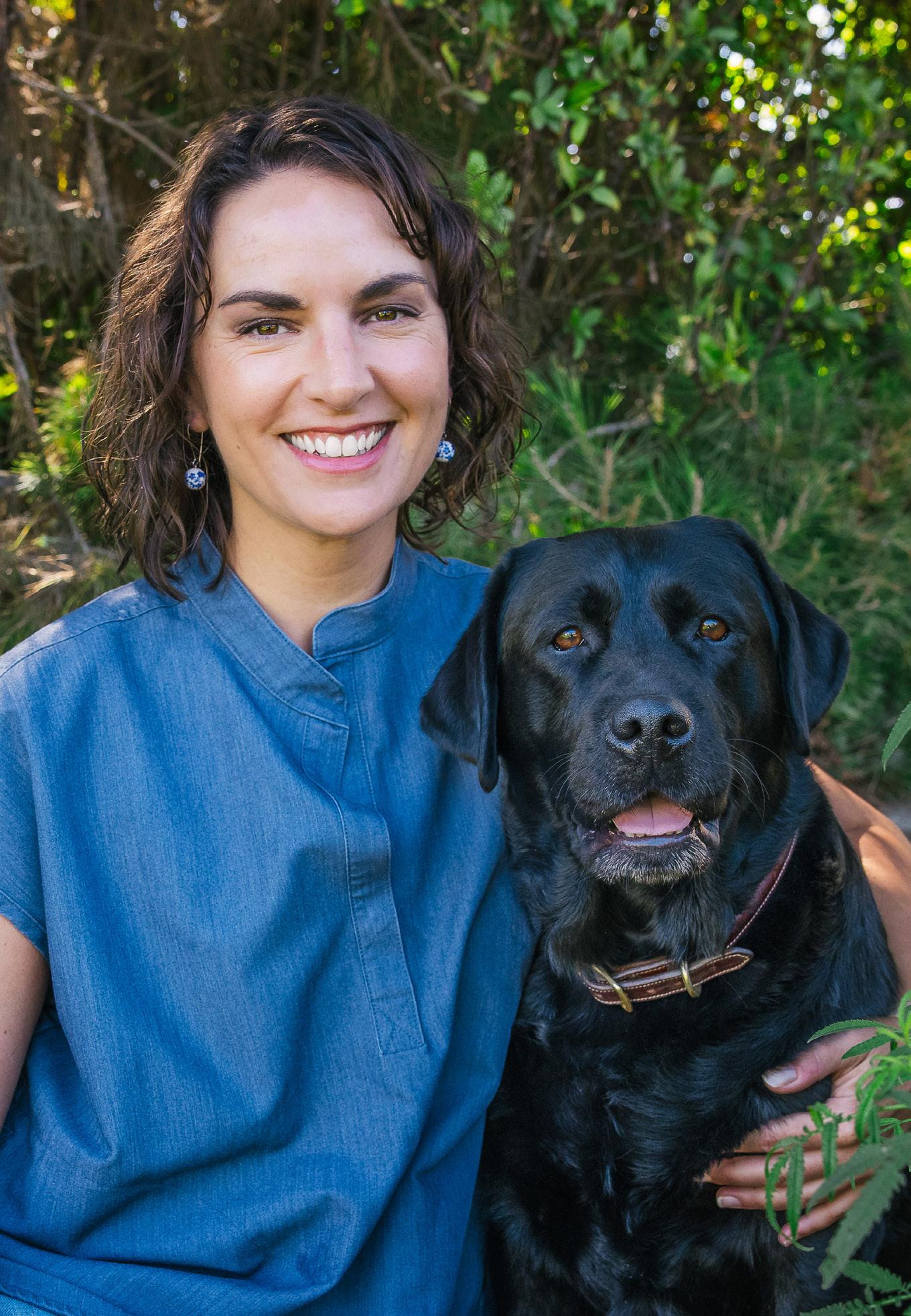
I am a CVMA member because I want to stay informed of legislation that impacts veterinary medicine and be a voice for veterinarians in my community.

New Laws for 2025
Dan Baxter, CVMA Executive Director and Grant Miller, DVM, CVMA Director of Regulatory Affairs
January 21, 2025 | 12:30–1:30 PM (1 CEU)
January 23, 2025 | 5:30–6:30 PM (1 CEU)
With several new laws taking effect in 2025, it is important for veterinary practices to have a clear view of the legal landscape to ensure continuing compliance. This talk will cover new and important laws that all employers and employees should be aware of moving forward. The course qualifies as continuing education credit for the purpose of California veterinarian and registered veterinary technician license renewal.
This course is complimentary to all CVMA members.
Register online by visiting the Continuing Education tab at cvma.net or by phone at 800.655.2862.
TELUS Health Wellness Webinars
TELUS Health, the CVMA’s Member Assistance Program, is offering free webinars each month of 2024 addressing various wellness topics. Please note: TELUS Health webinars do not offer CE credit.

Critical Thinking
SPONSORED BY:
December 6, 2024 | 11:00–11:30 AM
Beyond just memorizing facts or learning from rote, learning to think critically expands a person's ability to problem-solve and see things in a new way. By learning how to ask different kinds of questions, we open the floodgates to different ways of viewing concepts. This class will take a look at the origins of critical thinking concepts as well as applications of them in our work and private lives.
Holiday Budgeting
December 20, 2024 | 11:00–11:30 AM
We may have our finances under control during the year, but holidays can send spending seriously out of control. This class will help you avoid waking up on January 2 thinking, "How could I have spent and eaten that much!?" This motivational class teaches a skillset to keep the holidays in balance, financially.
For more information and to register for TELUS Health webinars, visit go.telushealth.com/en-us/wellbeing-calendar2024#november.


The CVMA is introducing its newest member benefit: a Multiple Employer Aggregate Program (MEAP) through Ameriprise Financial Services. This is a group retirement program (401k) that multiple employers can join through their affiliation with the CVMA. The program includes administrative and investment fiduciaries to oversee many operational and fiduciary tasks for the program and its adopting plans. The MEAP is designed to free up your time and preserve important flexibility, so you can focus on running your business. When you join the MEAP, your dedicated retirement plan representative with ClearRode Financial Group (an advisory practice of Ameriprise Financial Services) will be there for you, working with you to understand your business and your needs.
As of mid-2022, most California employers— specifically, those with five or more Californiabased employees—are legally required to offer a qualified retirement plan to their

employees. This new member benefit does exactly that! When you join the MEAP, your employees will get thoughtful, customized education and communications to help guide them through the retirement-planning process, making it easy for them to enroll, actively participate, and make informed investment choices. Account details, interactive tools, and helpful resources are all accessible via desktop, tablet, or smartphone.
The MEAP offers many benefits to an adopting employer and its employees, including:
• Group pricing discounts that could potentially lead to a discounted overall cost versus a practice’s current plan expenses
• An established process to simplify how contributions to the plan are submitted
• Reduction of much of the plan sponsor’s work, responsibilities, and fiduciary liabilities, typically at a similar or lower cost than they may already be paying
• Time and resource savings from handing off many essential administrative tasks, giving owners more flexibility to focus on aspects of the veterinary practice that drive profitability
• Enhanced ability to attract and retain top talent, as core benefits like retirement plans matter most to job seekers
• Educational programs to help employees make informed financial decisions
This benefit is exclusively for CVMA members. For more information, reach out to Michael Rodegerdts at ClearRode Financial Group by phone at 530.666.6337 or by email at michael.e.rodegerdts@ampf.com.
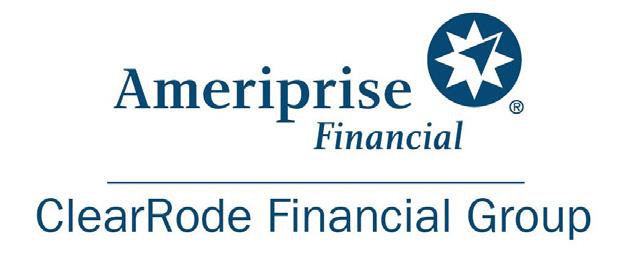
Have you looked at your CVMA member benefits recently? We have added several in the past year alone! Scan the QR code or visit cvma.net/membership/cvma-member-benefits/ to view the full list and take advantage of all your membership has to offer!

The 2024 California legislative session came to a close on September 30, marking the last day for the Governor to either sign or veto bills. Of the 2,124 bills introduced at the beginning of the legislative session in February of 2024, approximately half of those measures made their way to the Governor’s desk for consideration.
The CVMA is proud to report success at the Capitol this year through active representation on a number of critical measures that impacted animals and the veterinary profession. Below is a summary of the CVMA’s priority bills and their ultimate result in the 2024 legislative session.
SB 1233 (Wilk) Postsecondary education: veterinary medicine: spay and neuter techniques.
CVMA-Sponsored Bill
CVMA Position: SUPPORT
CURRENT BILL STATUS: Signed by Governor—Chaptered
The CVMA is thrilled to announce that on September 26, 2024, Governor Gavin Newsom signed CVMA-sponsored SB 1233 to implement landmark legislation that will help fight California’s pet overpopulation epidemic by creating High-Quality, HighVolume Spay/Neuter (HQHVSN) training certification programs at both of California’s veterinary schools. “The CVMA applauds Governor Newsom for signing SB 1233 by Senator Wilk and for recognizing the need for these important HQHVSN training programs in California,” said Dan Baxter, the CVMA’s Executive Director. “The CVMA is grateful to the coalition of recognized spay/neuter advocacy leaders who helped to secure the bill’s passage, including Social Compassion in Legislation, the San Francisco SPCA, the ASPCA, Cal Animals, the San Diego Humane Society, the Michelson Center for Public Policy, the Greater Los Angeles Spay Neuter Collaborative, the Latino Alliance for Animal Care Foundation, and the Humane Society of the United States and Humane Society Veterinary Medical Alliance. These groups offered strong support for the bill from
the very beginning and were active partners throughout the Session. This bill is truly a win-win-win—for animals, animal shelters, and the veterinary profession.”
The Governor issued a press release in conjunction with his signing of the measure and an additional measure pertaining to pet insurance (SB 1217-Glazer) stating: “Every pet deserves a home—and every home is happier with a pet—but the rising cost of pet care and the growing number of animals in need of adoption present real challenges. California is addressing both issues: reforming the pet insurance industry and supporting efforts to meet the high demand for accessible spay and neuter services to address overcrowding in shelters.”
To help address pet overpopulation issues, the CVMA sponsored SB 1233 (Wilk) to create HQHVSN certification programs at California’s two veterinary schools: Western University of Health Sciences College of Veterinary Medicine in Pomona and the University of California, Davis School of Veterinary Medicine. The bill provides HQHVSN elective certification courses for qualified California veterinary students, as well as for veterinarians and registered veterinary technicians (RVTs) in private practice.
Students enrolled in the certification courses will learn HQHVSN surgical techniques in addition to the assembly-line/team approach principles of HQHVSN. Students and veterinarians will be required to successfully complete a set number of surgeries using HQHVSN techniques to earn their certificate. RVTs will not be authorized to perform surgery under the terms of this bill but will instead be instructed in the crucial techniques needed to support HQHSVN surgeries. Licensed veterinarians and RVTs who complete the program will earn continuing education credit in addition to their certificate. Veterinary students will be able to take the certification courses for free, while licensees will pay a nominal fee. The spay and neuter surgeries will be provided at either no cost or at a low cost to qualified dog and cat owners, based on financial need. Each school will have the ability to structure its own program in accordance with HQHVSN best practices, available facilities, resources, and staff.
This legislation provides short-term and long-term solutions to the issue of dogs and cats needing to be sterilized by not only creating two large HQHVSN centers in both Northern and Southern California, but also by better equipping the veterinary workforce with the knowledge, skill, and ability to safely and efficiently perform HQHVSN surgeries.
The CVMA will continue to work with state officials to secure state funding for the programs as well as directly with both of the veterinary schools to construct and implement the curricula.
Finally, the CVMA wishes to thank Senator Scott Wilk and his staff for their tireless efforts to pass this bill.
AB 3029 (Bains) Controlled substances.
SB 1502 (Ashby) Controlled substances: xylazine.
CVMA Position: SUPPORT
CURRENT BILL STATUSES:
AB 3029: Held in Senate Appropriations Committee/Dead
SB 1502: Held in Assembly Public Safety Committee/Dead
Both of these bills were written to add xylazine to the Schedule III category of the State of California controlled substances list to help reduce the illicit use of xylazine among human substance abusers. Xylazine, also known as “tranq” in the illicit drug trade, is commonly combined with fentanyl and taken by drug abusers. The physiologic ramifications of these drugs in humans can be lethal, and thus both of the above legislators attempted to take proactive steps to limit the availability of xylazine to anyone other than a licensed veterinarian for legitimate veterinary medical practices. Xylazine is a commonly used sedative among livestock, equine, and wildlife veterinarians and is also utilized by animal control officers in the field who administer it under veterinarian direction.
The CVMA worked closely with both authors to help ensure that veterinarian access to xylazine was maintained following the transition of xylazine becoming a scheduled drug. AB 3029 was authored by Assemblymember Dr. Jasmeet Bains, a physician specializing in addiction medicine. SB 1502 was sponsored by Governor Gavin Newsom and authored by the Senate Business, Professions, and Economic Development Committee Chair, Senator Angelique Ashby. The CVMA testified in support of both bills during multiple committee hearings at the Capitol and provided technical expertise to both authors and the Governor’s staff. Unfortunately, neither bill made it to the Governor’s desk, as there were disputes between the two houses regarding how the measures should interface with actions on this subject by the United States Congress and the Federal Drug Enforcement Administration (DEA).
AB 814 (Lowenthal) Veterinary medicine: animal physical rehabilitation
CVMA Position: OPPOSE
CURRENT BILL STATUS: Bill Pulled from Committee Review at Author’s Request/Dead
This measure would have permitted physical therapists to open their own practices to provide animal physical rehabilitation services to all species of animals by veterinary referral. The bill was a repeat-attempt to override current state law by: 1) proposing that direct veterinarian supervision be removed in practices run by physical therapists and 2) avoiding minimum standards required of veterinary practices, such as inclusion of a licensee manager and other consumer protection provisions. The bill did not address access to veterinary care as the sponsors contended, but instead introduced a scope of practice creep by healing arts personnel with no formal licensing curriculum in animals. This would be unsafe for animals and deeply insulting
to the veterinary profession, and if allowed would pave the way for incursions by other healing arts professions. In addition, the California Veterinary Medical Board (CVMB) had estimated a $1.2 million implementation cost if the bill had passed. Since the VMB’s operating budget is not augmented by the general fund and comes solely from licensing and permit fees, the CVMA expressed concern about how this cost would have been covered.
The CVMA formed a coalition in opposition to AB 814, whose members included the American Veterinary Medical Association, the Sacramento Valley Veterinary Medical Association, the San Diego County Veterinary Medical Association, and the Southern California Veterinary Medical Association. This bill was held over in the Senate Business, Professions, and Economic Development Committee during last year’s legislative session but was resurrected in June of this year. Due in part to strong opposition from the CVMA and the CVMB, the bill was pulled from consideration by the author and was not heard in July as previously scheduled. The bill is dead for 2024, but the policy committee consultants will be convening a stakeholder group to continue discussions about animal physical rehabilitation. The CVMA will be a part of those talks.
SB 1478 (Nguyen) Veterinary medicine: registered veterinary technicians.
CVMA Position: WATCH
CURRENT BILL STATUS: Signed by Governor—Chaptered This bill will add specific language to existing law that better defines the written protocols that must be established by shelter veterinarians for RVTs to follow when managing animals in shelters. The protocols include time periods by which an impounded animal must be assessed at intake and monitored while in the custody of the agency; protocols to address the treatment of common medical conditions encountered in animals and for controlling infectious and zoonotic diseases, controlling acute pain, and preventing environmental contamination; communication requirements between the registered veterinary technician and the supervising veterinarian; and euthanasia criteria for medically related cases. The CVMA communicated with the author as well as with several shelter veterinarians and other stakeholders early in the Session regarding the focus and intent of this bill.
For specific information on bills or to track CVMA-monitored bills through the legislative process, visit the CVMA’s online Legislative Action Center in the Advocacy section of cvma.net.

SB 1233 Wilk
Postsecondary education: veterinary medicine: spay and neuter techniques. SIGNED BY GOVERNOR—CHAPTERED. Sponsor/Support
AB 814 Lowenthal Veterinary medicine: animal physical rehabilitation. BILL FAILED DEADLINE IN POLICY COMMITTEE. Oppose
AB 2133 Kalra Veterinary medicine: registered veterinary technicians. BILL HELD IN FISCAL COMMITTEE. Oppose
AB 2954 Carrillo Cats: declawing procedures: prohibition. BILL FAILED DEADLINE IN POLICY COMMITTEE. Oppose
AB 3029 Bains
SB 1502 Ashby
Controlled substances. BILL HELD IN FISCAL COMMITTEE. Support
Controlled substances: xylazine. BILL HELD IN POLICY COMMITTEE. Support
SB 1478 Nguyen Veterinary medicine: registered veterinary technicians. SIGNED BY GOVERNOR—CHAPTERED. Watch
AB 1902 Alanis Prescription drug labels: accessibility. SIGNED BY GOVERNOR—CHAPTERED.
AB 1983 Maienschein Income taxes: voluntary contributions: Prevention of Animal Homelessness and Cruelty Voluntary Tax Contribution Fund. SIGNED BY GOVERNOR—CHAPTERED.
AB 1988 Muratsuchi Stray animals: availability for adoption or release. SIGNED BY GOVERNOR—CHAPTERED. Watch
AB 2006 Mathis
Sales and Use Tax Law: exemption: over-the-counter medication. BILL FAILED DEADLINE IN POLICY COMMITTEE.
AB 2012 Lee Rabies control data. BILL HELD IN FISCAL COMMITTEE.
AB 2216 Haney
Tenancy: common household pets. BILL FAILED DEADLINE IN POLICY COMMITTEE.
AB 2248 Maienschein Contracts: sales of dogs and cats. BILL HELD IN FISCAL COMMITTEE.
AB 2265 McCarty Animals: euthanasia. BILL HELD IN FISCAL COMMITTEE Watch
AB 2269 Flora Board membership qualifications: public members. BILL FAILED DEADLINE IN POLICY COMMITTEE. Disapprove, Seek Info
AB 2425 Essayli Bowie’s Law: animals: adoption, shelter overcrowding, and breeding. BILL FAILED DEADLINE IN POLICY COMMITTEE.
AB 2445 Wallis
AB 2640 Kalra
AB 2761 Hart/Lowenthal
AB 2964 Hart
AB 3053 Kalra
Watch
Prescriptions: personal use pharmaceutical disposal system. BILL FAILED DEADLINE IN POLICY COMMITTEE. Oppose Unless Amended
Pupil instruction: animal dissection. BILL HELD IN FISCAL COMMITTEE.
Product safety: plastic packaging: Reducing Toxics in Packaging Act. BILL FAILED DEADLINE IN POLICY COMMITTEE.
Crimes: animal cruelty. BILL FAILED DEADLINE IN POLICY COMMITTEE.
Watch
Watch
Watch
State-supported fairs: exhibits: regulations. BILL FAILED DEADLINE IN POLICY COMMITTEE. Disapprove Unless Amended
AB 3063 McKinnor Pharmacies: compounding. BILL VETOED BY GOVERNOR. Support
SB 902 Roth/Portantino Firearms: public safety. SIGNED BY GOVERNOR—CHAPTERED. Watch
SB 921 Roth Animal welfare. BILL FAILED DEADLINE IN POLICY COMMITTEE. Approve
SB 922 Roth Animal cruelty. BILL FAILED DEADLINE IN POLICY COMMITTEE. Approve
SB 1067 Smallwood-Cuevas Healing arts: expedited licensure process. BILL VETOED BY GOVERNOR.
SB 1093 Padilla Vehicle equipment: tires. BILL FAILED DEADLINE IN POLICY COMMITTEE.
SB 1217 Glazer Pet insurance. SIGNED BY GOVERNOR—CHAPTERED.
SB 1345 Smallwood-Cuevas Employment discrimination: criminal history information. BILL FAILED DEADLINE IN POLICY COMMITTEE. Disapprove
SB 1358 Nguyen Rabies control data. BILL HELD IN FISCAL COMMITTEE.
SB 1459 Nguyen Animal shelters. SIGNED BY GOVERNOR—CHAPTERED.
The California Veterinary Medical Board (CVMB) convened for its fourth quarter meeting in Sacramento on October 15–17, 2024. The CVMB’s Multidisciplinary Advisory Committee (MDC) met on the first day, followed by two days of the whole board convening. CVMA Director of Regulatory Affairs Dr. Grant Miller attended all meetings along with CVMA Executive Director Dan Baxter.
The MDC reported progress on a regulatory package that would make several amendments to statutes and regulations pertaining to registration and permit applications. Although numerous, the proposed changes to the Veterinary Medicine Practice Act are mostly “clean up” in nature. The MDC also discussed a group of statutory and regulatory changes to the procedures followed during disciplinary actions.
The CVMB welcomed several new members. Patrick Espinoza was appointed by the governor to fill a vacant public member seat. Mr. Espinoza is Chief Deputy District Attorney in the San Diego County District Attorney's Office. Dr. Steven Manyak was appointed by the governor as a veterinarian member of the CVMB. He is a private small animal practitioner in Long Beach and a CVMA member.
The CVMB also held elections for its 2024–2025 Executive Committee. Dr. Maria Solacito was elected President and Kristi Pawlowski, RVT was elected Vice President. Both are CVMA members. Congratulations to Dr. Solacito and Kristi on their appointments!
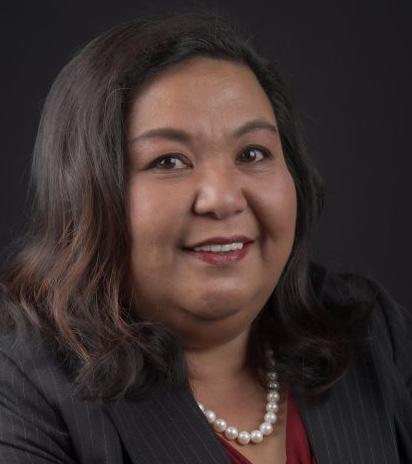
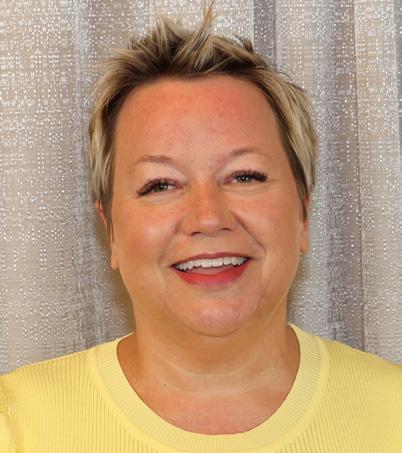
The CVMB discussed the same regulatory and statutory packages mentioned previously and voted to advance them in the rule-making process. The statutory components of the proposed laws will be introduced in the 2025 California legislative session, while the regulatory components will be put forward to the Department of Consumer Affairs for legal review.
CVMB Executive Officer Jessica Sieferman presented the CVMB Sunset Review report. All Department of Consumer Affairs Boards and Bureaus are required to come before a joint Assembly and Senate review committee every four years (on average) to report on issues and progress made by the Board in fulfilling their mission. The CVMB’s Sunset Review Report anchors its presentation to the legislature and identifies current issues that may require statutory changes. The Sunset Review also serves as an opportunity for other parties to bring forth issues that pertain to veterinary practice or the CVMB itself. The CVMA historically has been an active stakeholder in the CVMB Sunset Review and anticipates that the 2025 hearing and sunset omnibus bill will contain several legislative proposals that address a wide range of issues. Examples include illegal veterinary practice, license and permit registration requirements, enforcement and disciplinary proceedings, and others. The CVMB Sunset Review report will likely be posted on the CVMB’s website by January of 2025.
The next CVMB/MDC meeting will be held in Sacramento on January 15–16, 2025, with both in-person and virtual attendance welcomed. More information about CVMB meetings is available at: vmb.ca.gov/meetings/meetings.shtml
Experience Illuminating CE and Stunning Nature in Yosemite!
Tenaya Lodge at Yosemite
1122 Hwy 41 Fish Camp, CA 93623

Get ready for world-class continuing education and the awe-inspiring natural beauty of Yosemite National Park! The CVMA Spring Seminar in Yosemite, one of the CVMA’s most beloved events, returns next April and offers up to 12 CEUs on pharmacology and dentistry. With sessions finished before lunchtime, attendees have the whole afternoon to explore the stunning Yosemite Valley, including boundless hiking trails, gushing waterfalls, iconic rock formations, bustling wildlife, and more!
The CVMA Spring Seminar is open to ALL veterinary staff members and promises valuable information to benefit every practice!
For the first time ever, the CVMA Spring Seminar will take place in April, ensuring better weather conditions and allowing attendees to explore even more parts of the park.
Rooms are available at discounted rates of $199-$239, depending on your room selection.
Discounted rooms will be available until March 3, 2025, or until the block is sold out.
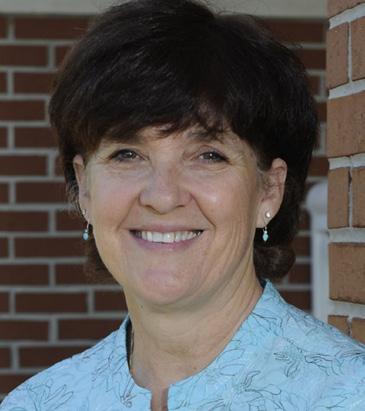

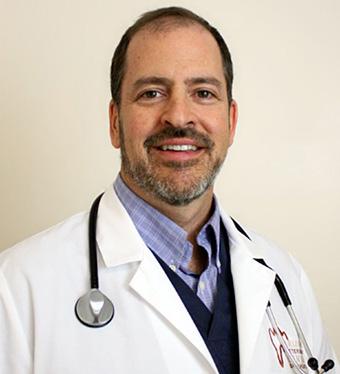
Pharmacology | Dawn Boothe, DVM, MS, Ph.D., DACVIM, DACVCP
• Interpretation of C&S: Still the Best Bang for Bug?‡
• Designing the Dosing Regimen: The MIC Is Still the KEY‡
• The Impact of Antimicrobials on the Microbiota‡
• The Three D’s: A Case-Based Approach to De-escalation, Decontamination, and Design of the Dosing Regimen
• Monoclonal Antibodies Part I: Are They Really Drugs?
• Monoclonal Antibodies Part II: A Review of Drugs Currently Approved for Small Animals
‡This course satisfies the one hour of California CE requirement on the judicious use of medically important antimicrobial drugs.
Dentistry | Curt Coffman, DVM, FAVD, DAVDC
• Tips and Tricks for Successful Tooth Extractions
• Dental X-Ray Interpretation and Diagnosis
• It’s Broken—Can It Be Fixed? Diagnosing and Treating Fractured/Injured Teeth
• Bad Bites and Baby Teeth: Navigating Dental Problems in Puppies and Kittens
• Feline Dentistry: Clinical Case Discussion of Oral and Dental Problems in Cats
• Canine Dentistry: Clinical Case Discussion of Oral and Dental Problems in Dogs
Full course descriptions available at cvma.net
Don’t wait! The CVMA Spring Seminar sells out every year, and spots are limited. If you’re unable to join us in-person, you may still attend via the Spring Seminar’s live and interactive online format! Secure your attendance now by visiting the Learning tab at cvma.net or calling 800.655.2862.
Sponsored by
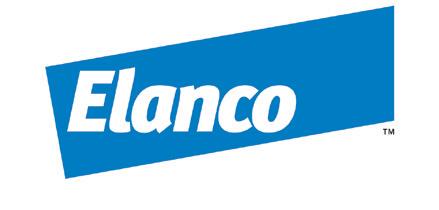


By Grant Miller, DVM, CVMA Director of Regulatory Affairs
The CVMA published a Sales and Use Tax guidance article in a recent edition of this publication (July/ August 2024) and has since been in contact with representatives from the California Department of Tax and Fee Administration (CDTFA) regarding misinformation presented in that article. In summary, the article described a tax collection and payment procedure that cannot be universally applied to all veterinary practices. This revision is intended to augment the previous article with more accurate information about sales and use tax rules for California veterinary practices.
First and foremost: no single taxation structure can be universally applied to all veterinary practices in relation to sales and use tax. There are several factors that
determine the tax status of a given item depending on how the item is purchased, utilized, and if applicable, resold by the veterinarian. Some of the factors that determine taxation of an item include:
• Whether the item is exempt from taxes or specifically listed as being subject to taxes based on classification in California Revenue and Taxation Code section 6018.1
• Whether tax is paid on the item at the time of purchase from a wholesale distributor
• Whether the item is used in connection with a service
• Whether the item is marked up prior to sale to a consumer
• Whether the item is charged as part of a service package versus being listed as a separate line-item in a billing system
In general, paying user tax (sometimes called “wholesale” tax) on all items
purchased from a wholesale distributor (i.e., MWI, Patterson, Covetrus, etc.) aids in compliance with California sales and use tax laws. While it is not required, most practices will likely find that paying user tax on all items is a more stable foundation on which to base a tax strategy than parsing out non-taxable items from those that are taxable.
Assuming that a practice pays user tax on all items purchased from a wholesale distributor, additional taxes, if any, on each item can depend on several factors. Here are the major considerations to determine if additional taxes (“retail” tax) would be due on a given item:
1. If the veterinary practice utilizes, administers, or dispenses an item in conjunction with a service, provided that the item is not specifically listed as a taxable item in Section 6018.1—regardless of whether or
not the veterinary practice marks up the item or medication—no additional tax is due. Again, this lack of additional taxation is predicated on the assumption that the veterinary practice paid user tax on the item at the time of its purchase from a wholesale distributor.
2. If the veterinary practice purchases an item from a wholesale distributor and pays tax on that item at the time of purchase, and then simply sells the item retail without any corresponding veterinary service, no additional tax is due provided that the veterinary practice does not mark up the price of the item.
As a corollary to #2 above, if the practice does mark up an item’s price, the following protocol must be followed: First, the veterinary practice should levy retail (sales) tax on the item at the full applicable tax rate (based on municipality) based on the retail price. Then, the veterinary practice should remit that tax to the CDTFA. Finally, since user tax was already paid on the item at the time of purchase from the wholesale distributor, the veterinary practice should claim a “Tax Paid Purchase Resold Deduction” for the dollar amount that the veterinary practice paid for the item at the time it was purchased from the wholesale distributor. This deduction can be claimed on the next CDTFA sales and use tax return filed by the veterinary practice.
The aforementioned scenarios are general examples, and veterinarians are encouraged to utilize the CDTFA’s free online publication, “Tax Tips for Veterinarians.” In the meantime, the summary table below shows the circumstances in which veterinarians are considered to be a retailer or a consumer of given items.
Veterinary practices are encouraged to contact the CDTFA Tax Advisors and Customer Service Center at 800.400.7115. These tax advisors commonly receive inquiries from veterinary practices and are familiar with the specific sales tax exemptions for California veterinary practices and the unique nature of item use and resale in veterinary medicine. Alternatively, tax questions may be emailed to the CDTFA from this webpage: cdtfa.ca.gov/email/

Preventive
This article is for informational and general educational purposes only. It is not intended to take the place of legal advice, nor should it be considered as a legal interpretation. Although significant effort has been made to ensure the accuracy and completeness of the information at the time of publication, the CVMA shall not be responsible for any errors or omissions, or any agency’s interpretation, application, or enforcement of the information presented herein. We
By Rebecca Johnson, Senior Director of Marketing, GlobalVetLink
In July 2024, the Centers for Disease Control and Prevention (CDC) updated its entry requirements for dogs entering the United States. These updates aim to enhance public health and safety by ensuring dogs are free from rabies and other diseases before entering the country. Understanding these requirements is crucial for pet owners and veterinary and animal care professionals.
The CDC has set the following requirements for dogs that have traveled to rabies-free or low-risk countries, such as Canada or Mexico, within the last six months.
• Health Inspection: Dogs must appear healthy to import inspectors upon arrival in the U.S.
• Age Requirement: Dogs must be at least six months old at the time of entry or return to the U.S.
• Microchip Identification: Dogs must have a microchip that can be detected with a universal scanner for identification purposes. The microchip is essential for linking the dog to its owner and ensuring that all documentation is correctly attributed.
• CDC Dog Import Form: Dogs must be accompanied by a CDC Dog Import Form completed by the owner. Upon form submission, the owner will receive an emailed receipt which can be printed or displayed on their phone for verification.


The requirements for dogs that have traveled to high-risk countries within the last six months differ based on where the dog was vaccinated against rabies. For a current list of high-risk countries, visit cdc.gov/importation/dogs/high-riskcountries.html.
The CDC has set the following requirements if the dog traveled to any high-risk countries within the last six months and was vaccinated for rabies in the U.S. before travel:
• Health Inspection: Dogs must appear healthy to import inspectors upon arrival.
• Age Requirement: Dogs must be at least six months old at the time of entry or return to the United States.
• Microchip Identification: Dogs must have a microchip that can be detected with a universal scanner for identification. The microchip must be implanted before the rabies vaccine is administered; otherwise,
the vaccine is considered invalid. The microchip number must be included on all required forms and supporting documents.
• CDC Dog Import Form: Dogs must be accompanied by a CDC Dog Import Form completed by the owner. Upon form submission, the owner will receive an emailed receipt which can be printed or displayed on their phone for verification.
• Certification of U.S.-Issued Rabies Vaccination: A USDA-accredited veterinarian must complete this document and submit it to the USDA for endorsement before the dog departs the U.S. Ample time should be allowed for this approval process as USDA endorsement offices are facing significant approval backlogs. Veterinarians should refer to the instructions for completing the documents to ensure accuracy and compliance. Instructions can be found at cdc.gov/importation/pdf/ PRA-2-1-Template-Change-TI-for-USVaccinated-Dogs_USDA.pdf.
The CDC has set the following requirements if the dog traveled to any high-risk countries within the last six months and was vaccinated for rabies in a foreign country.
• CDC Dog Import Form: This form is completed by the dog owner. Upon submission, a receipt is emailed, which can be printed or shown on a phone.
• Certification of Foreign Rabies Vaccination and Microchip Form: This form must be filled out by a veterinarian and endorsed by an official government veterinarian.
• Rabies Serology Titer Report: If not included on the form above, a valid rabies serology titer report from a CDC-approved laboratory is required.
• CDC-Registered Animal Care Facility Reservation: Dogs must have a reservation at a CDC-registered animal care facility. If the dog lacks a valid rabies serology titer, a 28-day quarantine reservation is necessary.
• Microchip Identification: Dogs must have a microchip detectable with a universal scanner. The microchip must be implanted before the rabies vaccine is administered to ensure validity. The microchip number must be included on all forms and documents.
• Health Inspection: Dogs must appear healthy upon arrival.
• Age Requirement: Dogs must be at least six months old at the time of entry.
For more information and guidance on importing dogs into the U.S., review the following resources for the most up-todate information:
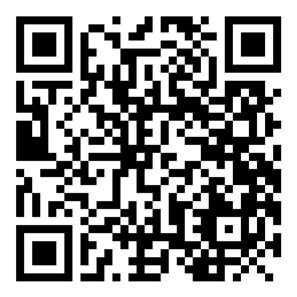

Adhering to these requirements can help pet owners and veterinarians ensure a smooth and compliant entry process for dogs traveling to the U.S., safeguarding both animal and public health.
Rebecca Johnson is the Senior Director of Marketing at GlobalVetLink. A graduate of Iowa State University now residing in northwest Iowa, Rebecca’s background in agriculture and animal science fuels innovative marketing strategies tailored to the unique needs of the veterinary industry. Rebecca can be reached at rjohnson@globalvetlink.com or 515.817.5075.
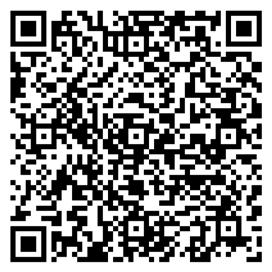
As a CVMA recommended member benefit, GlobalVetLink offers all CVMA veterinarian members an exclusive discount of 10% off electronic prescriptions, health certificates, feed directives, and other useful products to help veterinary practices manage records. Find more information and sign up for GlobalVetLink by scanning the QR code. GVL's Pet Travel Concierge Service does not qualify for the CVMA discount.

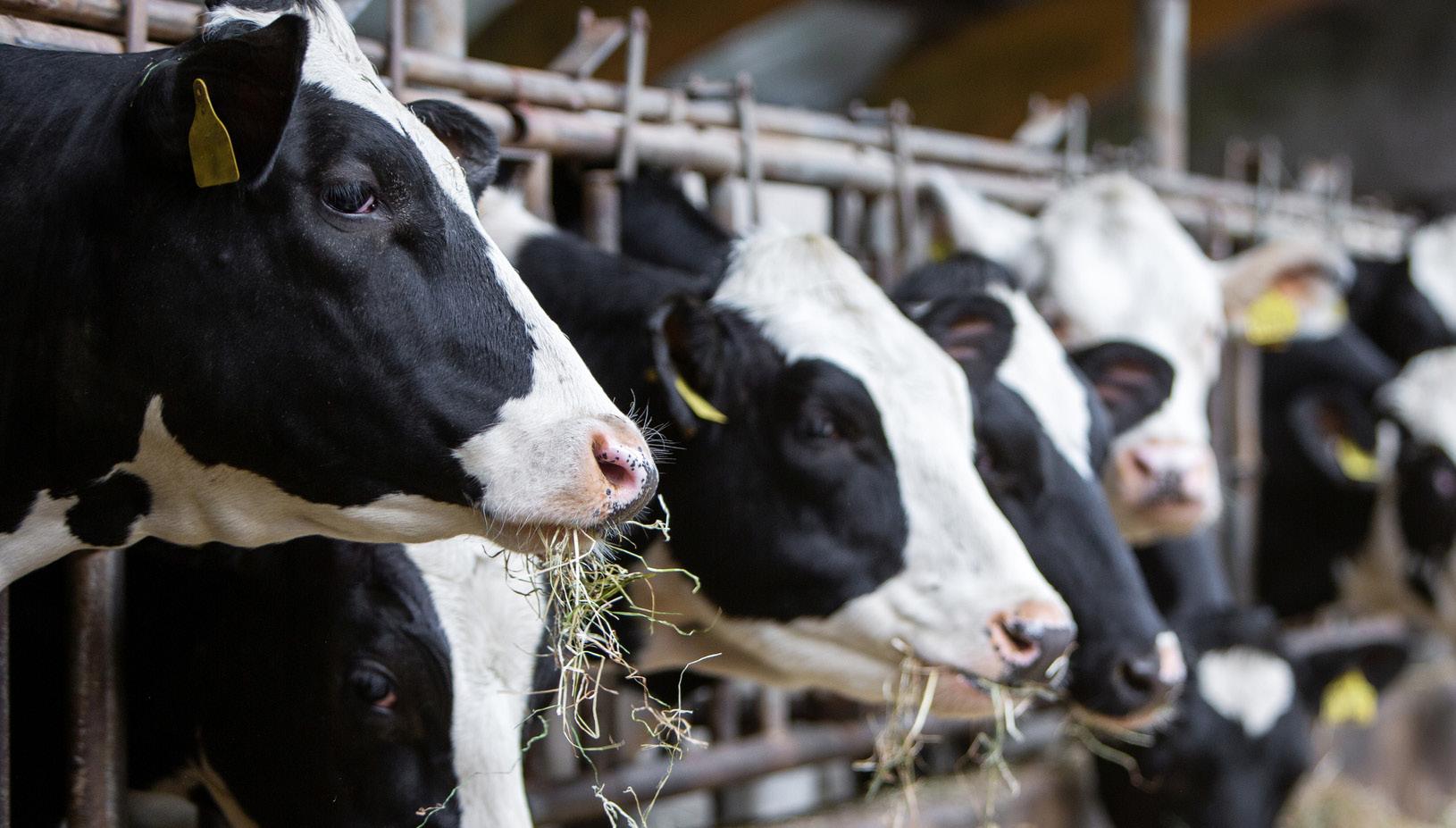
By Nicki Humphrey, DVM, California Department of Food and Agriculture Animal Health Branch
In 2024, U.S. dairy producers have been challenged by the emergence of Highly Pathogenic Avian Influenza (HPAI H5N1) virus in dairy herds. On March 25, 2024, HPAI H5N1 clade 2.3.4.4b virus was confirmed by the National Veterinary Services Laboratory in dairy cattle in Texas following reports of decreased milk yields across multiple dairy premises. Since initial confirmation, there have been a total of 331 confirmed affected dairy premises across 14 states, as of October 19, 2024.
California had its first confirmed detections on three dairy farms on August 30, 2024 in the Central Valley. As of October 18, 2024, there were 124
number of confirmed affected dairy premises in California. California Department of Food and Agriculture (CDFA) Animal Health Branch (AHB) has responded quickly by quarantining all affected farms and implementing our response and surveillance plan with requirements to address enhancing biosecurity and providing conditions for animal, personnel, and equipment/vehicle movements on and off affected farms. Vendors of affected dairies are also being asked to enhance biosecurity on and off affected premises and to make the affected premises the last stop on their routes. The plan also includes weekly surveillance of all dairies within 10 kilometers of an affected dairy.
Affected dairies report 10-50% of the herd can be affected with numerous clinical signs including:
1. Lactation abnormalities (decreased milk production, abnormal milk: thickened/ yellow, early dry off)
2. Digestive abnormalities (decreased feed consumption, decreased rumen motility, diarrhea/loose manure, tacky dry manure, constipation)
3. Respiratory abnormalities (increased respiratory rate, labored breathing, nasal discharge, blood from nose, pneumonia)
4. Other signs (neurological, blister/ulcers, abortions, lameness, fever, dehydration)
Based on epidemiological investigations conducted in affected dairy and poultry farms, viral transmission routes include animal movements, shared personnel, shared vehicles/equipment, and frequent visitors. These risk factors for viral spread can be mitigated through the implementation of sound biosecurity measures. In July, the California Dairy Quality Assurance Program hosted a Biosecurity for Dairy Visitors Webinar that
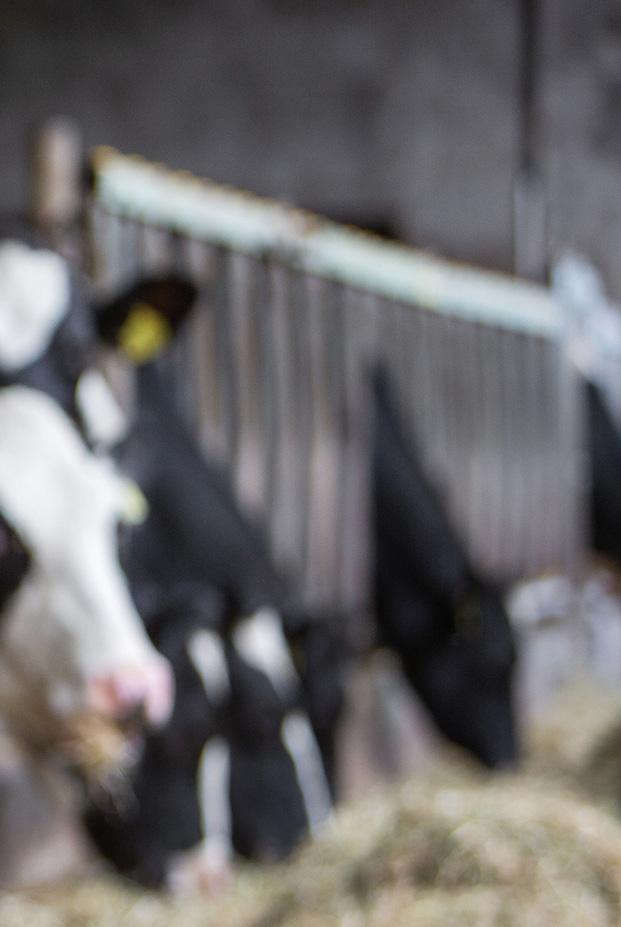
provided broad-ranging perspectives on ways to enhance biosecurity to prevent the introduction and spread of HPAI H5N1.
The CDFA began surveillance on California dairy farms following the USDA Animal and Plant Health Inspection Service’s implementation of a federal order on April 29, 2024. Surveillance has included milk samples from all functional quarters of individual cows, bulk tank samples, and raw milk food safety samples. CDFA developed a monitored herd program, in which two raw milk dairies currently participate by submitting biweekly bulk milk tank samples and monthly hospital pen samples.
The U.S. milk supply remains safe. The Food and Drug Administration (FDA) has conducted studies to evaluate the effectiveness of pasteurization to inactive HPAI H5N1 virus. The FDA’s most recent study looked at 167 samples from a variety of pasteurized retail milk products. 16.7% of these samples had detectable viral RNA
As HPAI H5N1 continues to spread, CDFA encourages producers and veterinarians to enhance biosecurity on and off dairy premises to limit the risk of disease introduction.
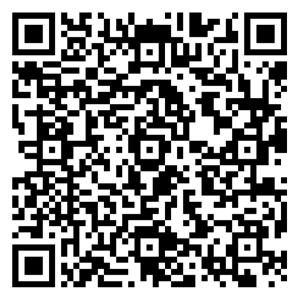
biosecurity plans and submit surveillance samples. More information on funding can be found by scanning the QR code.
by qRT-PCR; however, all samples were negative for virus isolation, indicating the pasteurization process effectively inactivates the HPAI H5N1 virus, providing assurances for consumer safety. The Food Safety Inspection Service (FSIS) also conducted studies evaluating the safety of the meat supply. FSIS in collaboration with Agricultural Research Services (ARS) inoculated ground beef patties, evaluated cooking temperature effectiveness, and found that recommended cooking temperatures for beef effectively inactivated HPAI H5N1 virus. FSIS also collected and evaluated 109 muscle samples from cull dairy cattle condemned at slaughter, only one of which showed PCR detectable virus. FSIS plans to continue sampling for HPAI H5N1 using PCR on muscle tissue collected from dairy cows leveraging its existing National Residue Program. In the event of virus detection on PCR, these carcasses will be purchased by FSIS and traceback information provided to USDA Animal and Plant Health Inspection Service (APHIS) who will conduct follow up actions as appropriate.
Veterinarians and producers are encouraged to remain vigilant for HPAI H5N1 and report any suspicions of disease. In California, H5N1 in livestock species is a reportable condition. USDA offers funding for affected and unaffected dairies to develop
As HPAI H5N1 continues to spread, CDFA encourages producers and veterinarians to enhance biosecurity on and off dairy premises to limit the risk of disease introduction. Any dairy producer within the state can submit bulk tank milk samples to assess the health status of their herds. A producer not under mandatory surveillance can contact their local AHB District office for information on how to submit voluntary samples. CDFA AHB is conducting epidemiological investigations on affected farms, exploring opportunities to conduct research. We continue to assess our response and surveillance plan as the outbreak expands and work in close collaboration with state and federal partners to protect livestock, poultry, and public health.
References
David L. Suarez, Iryna V. Goraichuk, Lindsay Killmaster, Erica Spackman, Nicole J. Clausen, Tristan J. Colonius, Cynthia L. Leonard, Monica L. Metz (2024). Testing of retail cheese, butter, ice cream and other dairy products for highly pathogenic avian influenza in the US. medRxiv. doi: doi.org/10.1101/2024.08.11.24311811

PacVet offers multiple special labs and symposia for you to choose from! Visit PacVet.net for more information.
Discover the latest, greatest veterinary products and services! The Vet Expo will be the site of complimentary lunches, coffee breaks, raffles, and other fun activities.
Step right up! Our theme for this year’s PacVet Vet Expo Mixer is UNDER THE BOARDWALK.
Join the fun on the evening of Friday, June 28 and dress up in your best carnival-inspired attire, play games, win prizes, and enjoy food and drinks!
During this special event, registered veterinary technicians and veterinary assistants are invited to visit with industry partners and NAVTA-approved academics and societies while enjoying appetizers, a no-host bar, and raffle prizes.
Phlebotomists will be on-site to collect serum samples from previously immunized veterinarians and veterinary staff. Make sure to schedule your appointment ahead of time to secure a spot!
Join us for an informative lunch and learn session brought to you by your insurance experts at Veterinary Insurance Services Company (VISC). We'll cover key topics, including:
• The essential types of insurance every veterinarian should have
• What different coverages mean and why they matter
• The importance of health benefits for you and your team
• Why life and disability coverage is crucial
• A business insurance 101 TED Talk to help you navigate the complexities of insurance
Enjoy a complimentary lunch while expanding your knowledge on safeguarding your veterinary practice. Don’t miss this opportunity to learn from the experts and connect with fellow veterinarians! Sponsored by VISC
Help us kick off the conference with a celebration of the 2025 CVMA Awards recipients and recognition of the incoming CVMA Board of Governors, led by the CVMA’s outgoing 20242025 President, Dr. Jennifer Hawkins.
All conference attendees are invited to join the CVMA in welcoming the next CVMA President! Enjoy a no-host bar and complimentary food.
Alumni
Catch up with your fellow UC Davis and WesternU alumni over appetizers and a no-host bar!
Student Posters
UC Davis and WesternU veterinary students will be stationed in the Vet Expo, sharing their poster presentations and answering questions about their impressive research!
Complimentary Daily Continental Breakfast
Early Bird Registration Deadline March 31, 2025
Advance Registration Deadline
June 16, 2025
Onsite registration will be available, space permitting.
Discounted Hotel Reservation Cut-Off
June 4, 2025 or whenever the room block is sold out—whichever comes first.
Advance Packet Pick-Up
June 26, 2025 5:00–6:30 PM
For in-person, pre-registered attendees only
CE Sessions
June 27–29, 2025
8:00 AM–5:15 PM
June 30, 2025 8:00 AM–3:45 PM
Vet Expo
June 28, 2025 10:25 AM–6:30 PM
June 29, 2025 10:25 AM–4:15 PM
The 2025 Pacific Veterinary Conference will be held at the Long Beach Convention Center. Conveniently located in the heart of downtown Long Beach, the Long Beach Convention Center is within walking distance of attractions like the Pike at Rainbow Harbor, the Aquarium of the Pacific, beaches, fine dining, shopping, and much more!

PacVet, Tailored Your Way!
As in past years, we are offering PacVet 2025 both in person and virtually. Please carefully consult the full PacVet schedule before making your choice, as not all tracks and events are offered virtually.
Access the FULL PacVet experience by attending in person in Long Beach! All PacVet tracks are open to in-person attendees, as well as a multitude of labs, symposia, special events, the Vet Expo, and other networking opportunities that are accessible to inperson attendees only.
Virtual attendance at PacVet secures your ability to attend our live and interactive Small Animal Medicine tracks and Technician track—all from the comfort and convenience of your home or practice! Just like inperson attendees, you will be able to earn up to 28.5 CEUs across the four conference days and ask speakers questions in real-time.
Venue
Long Beach Convention Center
100 South Pine Avenue
Long Beach, CA 90802
Host Hotel
The Hyatt Regency Long Beach
200 South Pine Avenue
Long Beach, CA 90802
$255 per night plus tax until June 4, 2025.
*Discounted rate available until the deadline or until the block fills up, whichever comes first.

Visit PacVet.net to make your hotel accommodations or scan the QR code.
Only seven miles from Long Beach Airport, 22 miles from Los Angeles International Airport, or 31 miles from John Wayne Airport Orange County!
Below is a list of tracks to date. Speakers will be announced in the following weeks. View the most up-to-date list of tracks, speakers, topics, and sessions at PacVet.net. Speakers and topics are subject to change.
Attend the keynote presentation by Dr. Gary Weitzman covering the ever-important topic of pet overpopulation and access to veterinary care!
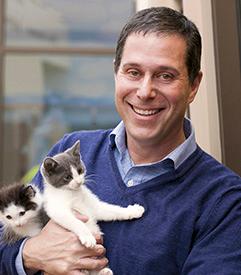
Gary Weitzman, DVM, MPH, CAWA, joined San Diego Humane Society as president and CEO in 2012. A certified animal welfare administrator, he has served as chair of the board of the Association for Animal Welfare Advancement and is currently serving as a board member for California Animal Welfare Association (CalAnimals), Shelter Animals Count, and Mama’s Kitchen, a San Diego nonprofit committed to providing food for people with chronic illnesses. A U.S. Air Force veteran, Dr. Weitzman earned a master’s degree in international public health from Boston University, and his DVM degree from Tufts University’s Cummings School of Veterinary Medicine.
In-Person-Only Tracks
Avian/Exotics
Diversity, Equity, and Inclusion and Wellness
Emergency/Critical Care
Integrative Medicine
One Health Practice Management
• NEW FOR 2025! One full day dedicated to practice owners!
Shelter Medicine
Small Animal Surgery
USDA-NVAP: APHIS-Approved Supplemental Training (AAST)
Plus multiple sponsored symposia and labs!
In-Person and Virtual Tracks
Conference welcome by CVMA President Dr. Jennifer Hawkins
Keynote presentation
Small Animal Medicine I and II
Technician
*NOTE: We are not offering an equine track at this year’s Pacific Veterinary Conference. Visit page 30 to check out the CVMA’s Equine Medicine Seminar for equine-specific CE!
Additional fees apply for labs, workshops, and rabies titer testing. Single-day registration is available. See PacVet.net for more information.
Registration opens November 18, 2024!

To reduce our environmental impact, we are eliminating paper registrations. Registration is available online at PacVet.net
If you need assistance with registration, please email staff@cvma.net or call 800.655.2862 to speak with a CVMA staff member.
Register by March 31, 2025 to maximize early registration discounts!
Full conference registration for veterinarians, practice managers, veterinary technicians, and veterinary staff includes: 2025 Vet Expo Early Registered Exhibitors
• Up to 28.5 CEUs across all PacVet tracks
• Admission into the Vet Expo
• Continental breakfast all four days
• Complimentary lunches in the Vet Expo (Friday and Saturday)
• Complimentary refreshment breaks
• Admission into the Vet Expo Mixer
• Conference bag and goodies
• Access to speaker lecture notes
• Labs, workshops, and symposia*
• Access to special events and networking opportunities
• Rabies titer testing*
• Raffle prizes
• And so much more!
• Up to 28.5 CEUs across three live and interactive virtual tracks
• Access to speaker lecture notes
• Live interaction with speakers during Q&A
• Connection with other attendees via the PacVet mobile app
• Raffle prizes
Go to pacvet.net for more information on:
• Discounted staff group or practice team registration
• Terms and conditions
*Subject to additional fees.
Advanced Monitors Corporation
Antech
Banfield Pet Hospital
BCP Veterinary Pharmacy
Bionote
Boehringer Ingelheim
CareCredit
Doctor Multimedia
Elanco Animal Health
Epicur Pharma/Stokes Pharmacy
Esaote North America
Hill's Pet Nutrition, Inc.
IDEXX
IDEXX Veterinary Software
Jorgensen Laboratories
KARL STORZ Veterinary Endoscopy
Medical Pet Shirts International
MediLoupes
Merck Animal Health
MiDOG Animal Diagnostics
NectarVet
Nutramax Laboratories Veterinary Sciences, Inc.
Omni Practice Group
ROSE MICRO SOLUTIONS
Scratch Financial
Talkatoo
Tempus Recruitment
Universal Imaging, inc.
VEG Veterinary Insurance Services Company (VISC)
Zoetis
Zomedica


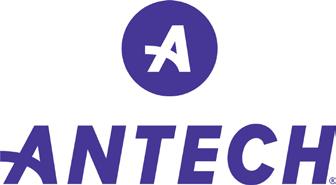
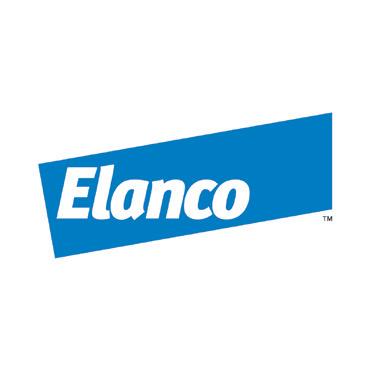



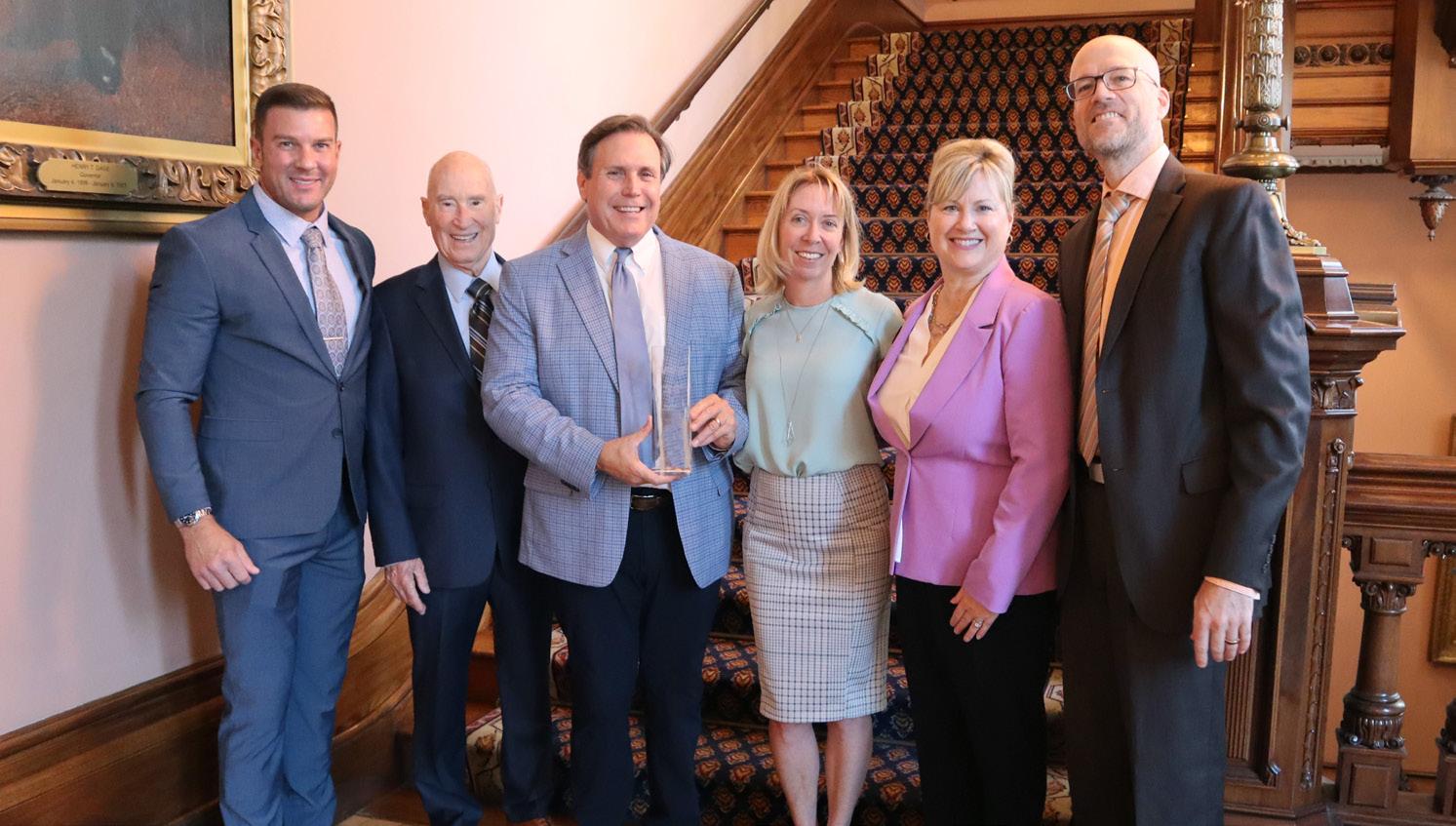
In late August, the CVMA presented Senator Scott Wilk with its first-ever Legislator of the Year Award. This award honors legislators demonstrating an understanding of and appreciation for the unique complexities of the veterinary medical profession and who celebrate the positive contributions of veterinarians, registered veterinary technicians, researchers, veterinary students, and veterinary medical faculty in our state.
“When we decided to institute this annual award, Senator Wilk immediately came to mind as the most deserving of legislators,” CVMA President Dr. Jennifer Hawkins said.
Senator Wilk is recognized for his exemplary leadership in advancing and preserving animal welfare and advocating for the veterinary profession over the years. This year, those qualities have shone brightly in Senator Wilk’s authoring of SB 1233, the CVMA-sponsored bill designed to help address pet overpopulation in California. SB 1233 will establish High-Quality, High-Volume Spay/Neuter (HQHVSN) certification programs at both of California’s veterinary schools. Students enrolled in the certification course will learn HQHVSN
surgical techniques and the assembly line/ team approach principles important to HQHVSN practice. Licensed veterinarians and RVTs are welcome to complete the program for continuing education credit in addition to their certificate. Veterinary students will be able to take the certification courses for free, while licensees will pay a nominal fee. The spay and neuter surgeries will be provided at either no cost or low cost to qualified dog and cat owners based on financial need.
Confronting an enormous deficit and one of the toughest budgetary years in California history, SB 1233 faced an uphill battle in getting passed. Nevertheless, SB 1233 garnered unanimous, bipartisan support in both the Assembly and Senate, and it was officially signed into law in late September by Governor Gavin Newsom. This successful result would not have been possible absent Senator Wilk’s championing of the bill. For this reason, the CVMA is sincerely grateful to Senator Wilk for his hard work in getting SB 1233 passed this year; this legislation will make an indelible mark on the problem of pet overpopulation and mass euthanasia in California.
In addition to his work on SB 1233, Senator Wilk has consistently proven to be a staunch proponent of animal welfare. Despite commercial animal blood banking being a contentious political issue, Senator Wilk led the charge in 2021 on securing the passage of AB 1282, permitting the implementation of community blood banks for animals for commercial use. This bill shifted California away from its reliance on closed-colony animal blood banks, where animals are confined for the sole purpose of collecting blood, to more humane community blood banks, where blood is collected from pets whose owners voluntarily consent to the donation. With his efforts on AB 1282, Senator Wilk has helped save countless animal lives and create a more ethical mode of animal blood collection.
In previous years, Senator Wilk also participated in the CVMA's Legislative Day, speaking to CVMA leaders and veterinary students about advocacy and legislative work at the Capitol. We thank Senator Wilk for his friendship to the CVMA, for always giving the voice of the veterinary profession an attentive ear, and for his willingness to meet with our legislative team to discuss issues pertaining to animal wellbeing. There is no one more worthy than Senator Wilk to receive the inaugural 2024 Legislator of the Year Award!

The CVMA is seeking candidates to apply for AVMA council and committee positions, which start in 2025 and require a threeyear commitment. These positions are voluntary. CVMA and AVMA membership is required for all candidates nominated by the CVMA Board of Governors. The Board will nominate candidates at its January 2025 meeting.
Council and committee nomination materials, including descriptions and a complete list of vacancies, are available at avma.org. Click on the Membership tab and then Volunteer Opportunities for more information, to apply for a position, or to sign up for email alerts regarding available positions.
For more information, please call the CVMA at 800.655.2862.
Positions are available on the following councils:
• Council on Biologic and Therapeutic Agents
• Council on Education
• Council on Public Health
• Council on Veterinary Service
Positions are available on the following committees:
• American Board of Veterinary Specialties
• Animal Welfare Committee
• Aquatic Veterinary Medicine Committee
• Clinical Practitioners Advisory Committee
• Committee on Disaster and Emergency Issues
• Committee on Environmental Issues
• Convention Education Program Committee
• Committee on Veterinary Technician Education and Activities
• Educational Commission for Foreign Veterinary Graduates
• Food Safety Advisory Committee
• Legislative Advisory Committee
• Steering Committee on Human-Animal Interactions
• Veterinary Leadership Conference Planning Committee
• Veterinary Specialty Organizations Committee
Veterinarians, RVTs and CVMA CVAs, and veterinary and RVT students are invited to attend the first-ever CVMA Equine Medicine Seminar! Scheduled for April 4–6, 2025 and held alongside the CVMA Spring Seminar at the Tenaya Lodge at Yosemite, the CVMA Equine Medicine Seminar will include CE tailored to equine practitioners, networking opportunities to foster professional connections with fellow clinicians and veterinary students interested in equine medicine, and a town-hall-style meeting to contemplate issues facing the profession and industry.
The CVMA’s Equine Medicine Seminar is an in-person event only. Register by visiting the Learning tab at cvma.net or calling the CVMA at 800.655.2862
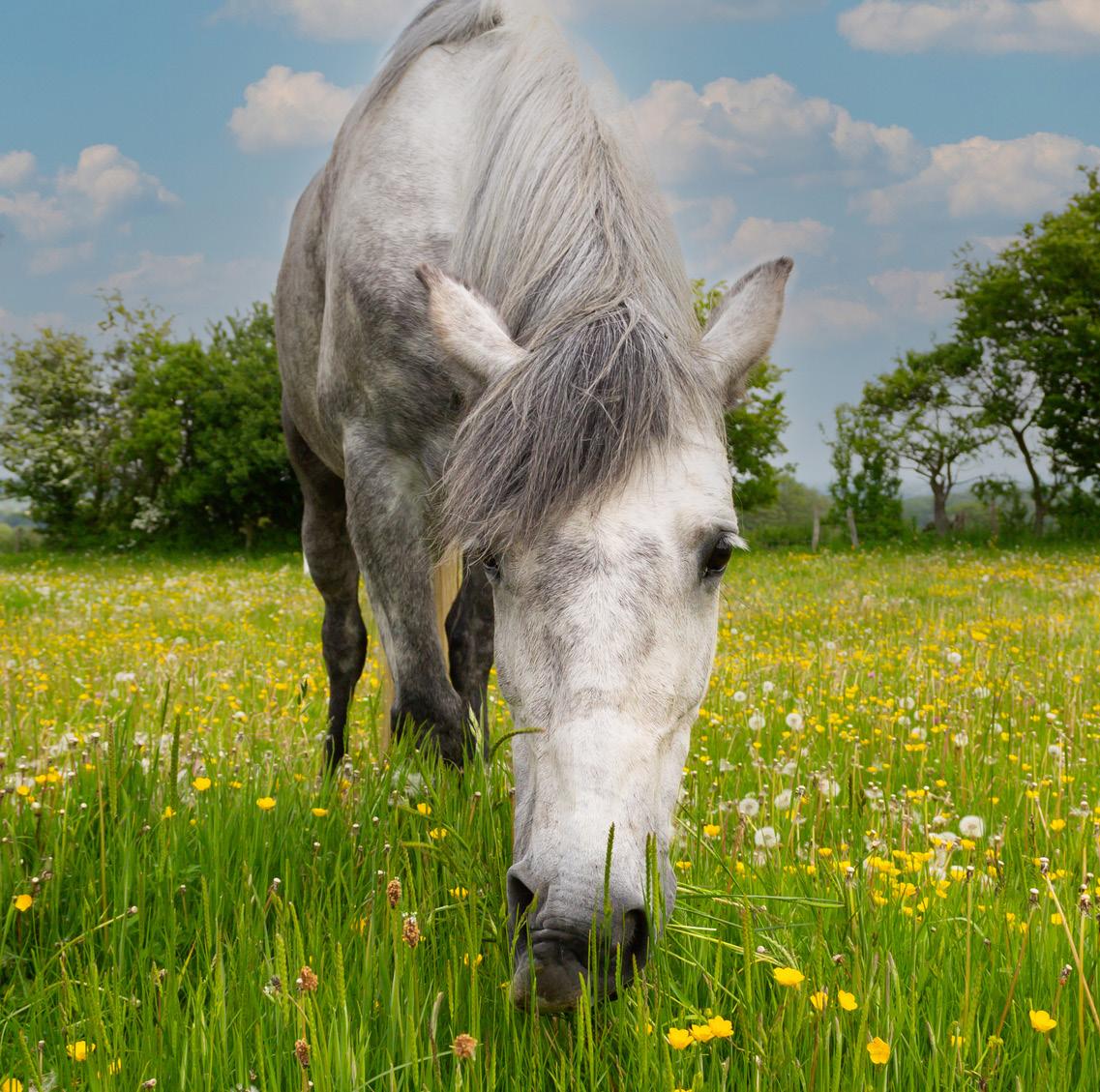

The 2025 Pacific Veterinary Conference will not be featuring an equine track, so equine practitioners will want to attend the Equine Medicine Seminar to earn CE and expand their knowledge for everyday and specialty practice!

The CVMA’s Certified Veterinary Assistant (CVMA CVA) Program is an opportunity for veterinary assistants to expand their knowledge and advance their careers in the veterinary profession.
Veterinary assistants learn through online education, in-practice practical experience, and skills assessments under the supervision of licensed veterinarians and RVTs before their final examination.
The CVMA CVA program now offers Level I (basic knowledge) and Level II (advanced knowledge)!
Benefits to Veterinary Assistants:
• Professional growth and increased value to the veterinary team
• Proficiency in medical terminology, nursing skills, surgical preparation, and much more
• The ability to learn while continuing to work
• One year of complimentary CVMA membership upon completing Level I certification
For full program information, visit the Resources tab at cvma.net.
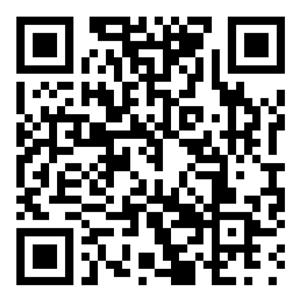

By Ewan Wolff, Ph.D., DVM, DACVIM
In diversity, equity, inclusion, and belonging (DEI-B) work, we talk a lot about spoken and written forms of passive and active harassment and discrimination. These discussions give tangible callouts for action and can provide roadmaps for development. We also bring up unconscious and hidden bias that drives exclusion and other practices that sideline marginalized people. What we don’t talk a lot about is how silence can also be a form of discrimination.
Silence is unwieldy and uncertain. Silence is often unknowable. Silence can serve as an “easy way out” for those who would rather leave discriminatory thoughts unspoken. For those who are the victims of it, silence can be deafening.
My husband and I experienced silence firsthand in Lafayette, Indiana when we called a contractor to get an estimate on some bathroom renovation work. The person I talked to was very friendly and said they’d come out to look at the bathroom. I told them I’d be at work but my husband would be at home, and I gave the contractor his number. After that, they sounded odd and didn’t show up on the day they were scheduled. I tried calling and left messages, but they never called back. We tried another plumbing
contractor and got the same results. We then went to a store in person and, again, were met with silence. Finally, my father-inlaw drove out from South Carolina to help, and we did the work ourselves.
When we moved just outside of Orlando several years later, we had a fence company, a plumber, a general contractor, and a painter all confirm, not show, and then refuse our calls. If I mentioned a husband, or that two of us would be there for the estimate, we would never hear from them again. We learned that contractors would only come if there was one point of contact and if we were never seen together. Silence told us everything we needed to know about what they thought of us.
For queer people, these moments are not limited to contractors and businesses but are ever-present throughout our daily lives, conversations, and workplaces. Silence is often brought on by the mention of queerness: long pauses when people look away, rephrase their question, change the subject—dashes in the conversation that mimic Morse code. These beats of silence damp out the rainbow, allow hatred to seep into civil conversation, and bring a heavy weight to any interaction. Queer individuals are armed by past experiences to defend against low shots spoken aloud about our relationships, sexual orientation,
gender identity, and pronouns. It’s much harder to manage skipped and unexpected beats around the mundane details of our lives.
Queer people are always navigating the murky waters of how much to say or when it’s safe enough to speak openly. We cast out these lines of identity, whether purposefully or not, and wait to see who grabs and pulls them up. We can never be sure what we will find on the other end.
In networking and interviews, there’s an added layer of pressure and anticipated consequence for having a queer identity. There is a moment of apprehension when someone hears our pronouns for the first time, when we ask about whether there will be health coverage for our spouse’s gender-affirming care, or when we have to choose whether to out our kid or redirect the conversation when a colleague asks if our kids are boys or girls because our youngest is nonbinary. All too often, there isn’t an immediate response during the conversation, and we have to keep guessing until their true beliefs become clear later— such as when our family member is misgendered, when a husband is called a partner, or when someone makes an unintended but revealing assumption about our existence.
Or, interactions may appear to go incredibly well. The connection may be strong, and the plans for follow up are set and clear. “We’ll catch up by Friday at the latest,” someone will promise, and then a couple of weeks go by, and then a month, and then nothing. We’re taught to say to ourselves in these circumstances: “It’s not about me.” “Maybe they chose someone internally for that job or committee.” “Maybe they’re busy, or the cycle was canceled.” Then reality sets in and the second-guessing begins when announcements come out.
One of the most insidious parts about silence is that it’s impossible to ever know for sure what is attributable to typical factors or chance and which opportunities are lost because of who we are as queer individuals. Admittedly, many people who don’t have a marginalized identity often experience a lack of follow-up by potential employers. But studies continually demonstrate that individuals with queer identity face increased silence from prospective employers. According to a 2024 experiment published by the electronic journal SSRN, putting "they/ them" pronouns on a resume reduced employer response by 5.4 percentage points (Eames, 2024). Another study, conducted by Business.com in 2023, aimed to discern whether jobseekers with non-binary gender pronouns on their resumes were less likely to be contacted by employers in the U.S. The experiment involved submitting hypothetical resumes to employers that were identical, except that one version included “they/ them” pronouns, and the other did not. According to the poll, 59% of the nonbinary applicants felt their identity would “somewhat hurt” their chances, while 24% thought it would “very much hurt” their chances. The results validated their concerns, as hiring managers were 4% less likely to ask non-binary applicants for an interview and felt that the candidates with “they/them” pronouns were 7% less qualified for the position.
Because of these reports, I stripped back 40 years of personal growth and removed “they/them” from LinkedIn and my CV for a few months. I thought about shutting down a queer social media account that I run. It was a painful and futile effort on my part; even if I don’t have pronouns on my nametag at work, people know there’s something different about me, something “other.” That’s always been true. I’m also vocal about and publicly involved in queer advocacy work.
Tolerance is a lower bar than understanding—and vastly lower than inclusion. But I remember for a short time, several years ago, when it felt like tolerance for the queer community was more prevalent than it is today. It is a cruel paradox that in a time that offers such great resources for supporting gender diversity, we are witnessing a rise in individuals emboldened by political rhetoric to reject compassion and sever connections. Unfortunately, this current moment of antiLGBTQ+ sentiment is a tired echo carried through human existence.
The boring truth is that every queer person is just a person, which sadly needs to be repeated often. Dehumanizing the LGBTQ+ community impacts more than the individuals within it. When discrimination is used as a filter for opportunity, whether intentionally or not, the results cut both ways. In the 20th century, scientific discovery, medicine, business, and the arts benefited from queer people without ever explicitly acknowledging it. Will the 21st century squander the contributions of queer innovation entirely because higher visibility has pushed a backlash of exclusion?
Gen Z and Gen Alpha have historic numbers of out queer individuals counting on progress, including the removal of obstacles to advancement. The lived experiences of the community are too far intertwined now with the future of veterinary medicine to be neglected. To solve this problem, there
is a responsibility on both sides of the equation. As has been practiced for centuries, marginalized people need to continue to communicate with each other about the barriers that we encounter so that issues can be brought directly to organizations and companies, including those in the veterinary profession. Conversely, employers and those empowered to advance others must recognize the effect of silence and work to eradicate it to have fully equitable and inclusive workplaces.

Dr. Ewan Wolff, Ph.D., DVM, DACVIM (they/them) is a small animal internist in Portland, Oregon and the industry liaison for PrideVMC. They earned their DVM degree from the University of Wisconsin–Madison in 2011, and they completed their residency and subsequent ACVIM fellowship at Purdue University. They have worked in specialty practice since 2018. At PrideVMC, they co-authored the Gender Identity Bill of Rights and coauthored/ edited the Gender Diversity Guide. They have lectured on clinical and DEI subjects nationally and have authored multiple articles and book chapters.
Dr. Leslie Ahluwalia
Dr. Jill Andre
Dr. Steven Archinal
Dr. Kevin Baker
Dr. Vered Bar
Dr. Megan Beaumont
Dr. Krishna Bhatt
Dr. Elizabeth Bicknese
Dr. Katherine Branam
Dr. Rosemary Broome
Dr. Franklin Brown
Dr. Justin Chatoian
Dr. SeongJin Cho
Dr. Joanna Choi
Dr. Kaila Chung
Dr. Victor Cobian Navarro
Dr. Sarah Cocker Scott
Dr. Jordan Collier
Dr. Desirae Costello
Dr. Jamie Croy
Dr. Mehtab Dhillon
Dr. Megan Drake
Dr. Kathryn Elden
Dr. Steven Epstein
Dr. Emily Farmer
Dr. Halley Fobes
Dr. Jennifer Folger
Dr. Matthew Ford
Dr. Silvia Funes Sebastian
Dr. Noe Galvan
Dr. Michelle Gavin
Dr. Romy Gill
Dr. Emily Gould
Dr. Renee Gray
Dr. Michele Greer
Dr. Elizabeth Grey
Dr. Croix Griffin
Dr. Jesus Guajardo
Dr. Marcella Harb-Hauser
Dr. Gregory Hardy
Dr. Kirsten Hentz
Dr. Jill Hopfenbeck
Dr. Gaurav Kaul
Dr. John Kim
Dr. Yue Moi Kouch
Dr. Ann Kownacki
Dr. Peter Lands
Dr. Catherine Lee
Dr. Soo Lee
Dr. Sandra Lester
Dr. Raffael Lichdi
Dr. Dheer Mahal
Dr. Erin McCarty
Dr. Brian McGrath
Dr. Michael Mison
Dr. Bree Montana
Dr. Natalie Munoz
Dr. Kolleen Nellett
Dr. Cara Nguyen
Dr. Nazbanoo Pahlavi
Dr. Giyoung Park
Dr. Keehae Park
Dr. Margaret Powell
Dr. Lara Rasmussen
Dr. Brij Rawat
Dr. Jeri Rose Ray
Dr. R. Troy Roach
Dr. Michael Schacher
Dr. Sunil Sharma
Dr. Priscilla Shimura
Dr. Scott Simon
Dr. Gurpreet Singh
Dr. Carol Smith
Dr. Jenny Smith
Dr. Juli Sorenson
Dr. Angelo Stanton
Dr. Donald Stremme
Dr. Ilana Strubel
Dr. Megan Thomas
Dr. Dominic To
Dr. Samantha Tong
Dr. Evelyn Townsell
Dr. Brett Turi
Dr. Naomi Urbina
Dr. Nadia Vargas Mendez
Dr. Thomas Welsh
Dr. Brooke Wheeler
Dr. Catherine White
Dr. Danielle Williams
Dr. April Woods
Dr. William Yohler
Dr. Lisa Zinn
Dr. Madeline Zurowsky
Veterinarian Faculty
Dr. Cherein Abdel Massih
Dr. Essam Abdelfattah
Dr. Sharif Aly
Dr. Po-Yen Chou
Dr. Todd Cornish
Dr. Jonathan Dear
Dr. Carrie Finno
Dr. Stephanie Frank
Dr. Karl Jandrey
Dr. Bret McNabb
Dr. Trusten Moore
Dr. Ayman Mostafa
Dr. Bruno Pypendop
Dr. Simone Stoute
Dr. Francisco Uzal
Dr. Karen Vernau
Dr. Johanna Watson
Veterinarian Public Service
Dr. Natalie Johns
Dr. Amelia Knieper
Dr. Jamie Middleton
Dr. Itzel Vizcarra
Veterinarian 1st Year Graduate
Dr. Simran Bajwa
Dr. Elizabeth Bamford
Dr. Alexa Berman
Dr. Chris Chu
Dr. Alexandria Clifton
Dr. Martin Desales
Dr. Lily Elder
Dr. Nicole Emmitt
Dr. Jessica Gutierrez
Dr. Kayla Jackson
Dr. Michelle Ledru
Dr. Zhishan Liu
Dr. Natalia Melchor Lopez
Dr. Rachel Mensing
Dr. Nicholas Moran
Dr. Cionna Rosenthal
Dr. Victoria Ryan
Dr. Adrian Santoyo Saldana
Dr. Mikaela Sivley
Dr. Tiffany Stehr
Dr. David Suh
Veterinarian 2nd Year Graduate
Dr. Jamey Abeles
Dr. Shannon Khodadad
Dr. Kathleen McGrew
Dr. Kevin Nguyen
Dr. Adriana Razo
Dr. Lisa Savacool
Dr. Ian Schneider
Dr. Christopher Thompson
Dr. Claudia Tran
Dr. Chantal Worsfold
Veterinarian 3rd Year Graduate
Dr. Ariana Amador
Dr. Natalie Lepire
Dr. Elena Pires
Dr. Zachary Pollack
Dr. Mareika Ydens
Veterinarian 4th Year Graduate
Dr. Christina Ball
Dr. Max Diaz
Dr. Jejin Eun
Dr. Kendra Gagneux
Dr. Sonya Shaw
Veterinarian Intern/Resident
Dr. Jacob Herford
Registered Veterinary Technician
Melissa Aguilar, RVT
Sarah Alaniz, RVT
Marta Aleman, RVT
Julia Alloy, RVT
Monique Amboni Kearns, RVT
Cristian Barba, RVT
Sara Bazley, RVT
Sabrina Beck, RVT
Regina Beeler, RVT
Alexandra Bielaski, RVT
Ha Yeun Borgeson, RVT
Rae Ann Bower, RVT
Alyssa Bressem, RVT
Jade Bricco, RVT
Summer Brooks, RVT
Heather Bryant, RVT
Lisa Bubion, RVT
Alesia Caballero, RVT
Francesca Capps, RVT
Kimberly Carlson, RVT
Rose Carnahan, RVT
Shirley Castro, RVT
Julienne Chow, RVT
Young Shin Chun, RVT
Cambrie Congdon, RVT
Ana Cosio Villa, RVT
Juliana De La Cruz, RVT
Deanna Desmet, RVT
Patricia Elvina, RVT
Mavil Fajardo, RVT
Taylor Foster, RVT
Randi Freestone, RVT
Jiaqi Gallegos, RVT
Carolyn Gillesby, RVT
Carina Gonzalez, RVT
Brittany Grey, RVT
Rebeca Guembes, RVT
Erin Hale, RVT
Corrina Hamon, RVT
Miriam Hernandez, RVT
Tiffany Howell, RVT
Raikhan Issataeva, RVT
Lesley Jaime Alegria, RVT
Elena Johnson, RVT
Deborah Kay, RVT
Katelyn Keene, RVT
Amanda Kerns, RVT
Alexandra Kincaid, RVT
Anna Kosyakova, RVT
Skylar Kuo, RVT
Jessica Lange, RVT
Yvonne LeGrice, RVT
Deborah Lewis, RVT
Jennifer Lin, RVT
Deborah Livermore, RVT
Jill Martinez, RVT
Samantha Mason, RVT
Marni McChesney, RVT
Annabelle McLellan, RVT
Karlena McRae, RVT
Reina Medeiros, RVT
Brittney Medrano, RVT
Max Mendez, RVT
Amanda Miller, RVT
Emily Miller, RVT
Candace Miranda, RVT
Kelly Mitchell, RVT
Jessica Navarro, RVT
Kimberly Nguy, RVT
Jessica Opos, RVT
Cory Ornay, RVT
Christal Peden, RVT
Margarita Pena Jacinto, RVT
Alice Persall, RVT
Quinn Petras-Yang, RVT
Tiffany Porter, RVT
Jessica Radke-Davis, RVT
Gorethy Ramirez, RVT
Savannah Ray, RVT
Sarah Rodriguez, RVT
Ryan Rutledge, RVT
Timothy Sanchez, RVT
Cecilia Sanford, RVT
Cailey Scharrer, RVT
Zahra Schwarm, RVT
Jessica Scott, RVT
Joanie Seta, RVT
Caitlyn Sherwood, RVT
Zuley Sosa-Guasch, RVT
Cori Tee, RVT
Ellen Torres, RVT
Lindsay Torres, RVT
Caroline Trudeau, RVT
Arillana Trujillo, RVT
Sheva Vatannia, RVT
Alexandra Venta, RVT
Viviana Vidaurre, RVT
Maira Vierheller, RVT
Rosa Villanueva, RVT
Kathleen Vogt, RVT
Dustin Walsh, RVT
Patricia Wampler, RVT
Taylor Wells, RVT
Brendan Widner, RVT
Kimberly Williams, RVT
Julie Zembik, RVT
CVMA Certified Veterinary Assistant
Meghan Barna, CVMA CVA
Jesse Berry, CVMA CVA
Jayme Blow, CVMA CVA
Eliza Cameron, CVMA CVA
Bonnie Christian, CVMA CVA
Yasmeen Day, CVMA CVA
Samantha Griggs, CVMA CVA
Jerica Jones, CVMA CVA
Ava Kalsbeek, CVMA CVA
Shawntel Lopez, CVMA CVA
Cassandra Meredith, CVMA CVA
Carina Olmos, CVMA CVA
Elizabeth Ricardez, CVMA CVA
Veterinary Hospital Staff
Mindy Basra
Shannon Clamar
Mikaela Davis
Jody Dunn Weathers
Holly Htoy
Martha Macias
Amber Monsen
Ashley Noonan
Shelby Richins
Samantha Tianco
By Scott Boggess, CSP, CIE Director, Safety and Health, Preferred Employers Insurance
California is known for its mild weather, but winter can bring unexpected and potentially hazardous driving conditions, especially in mountainous areas and the colder northern regions of the state. While most Californians might not face the same winter challenges as drivers in other states, understanding how to drive safely during winter is crucial for everyone, including mobile veterinary practitioners who need to take appointments during inclement weather. Here are some essential tips for navigating California’s roads safely during the winter months.
Winter weather in California can vary significantly depending on the region. Coastal areas may experience heavy rains or fog, while the Sierra Nevada and other mountainous regions can see snow and ice. Always check the weather forecast before heading out, especially if you’re planning to travel through higher elevations where snow is more likely. Websites like Caltrans (California Department of Transportation, dot.ca.gov) provide real-time road conditions, including chain control requirements, road closures, and weather alerts.
Preparation is key to safe winter driving. Ensure your vehicle is winter-ready by checking the following:
• Tires: Make sure your tires are in good condition, properly inflated, and have adequate tread depth. In areas prone to snow, consider using winter tires or carrying tire chains. California law requires drivers to carry chains when
driving in snowy areas, even if you have a four-wheel-drive vehicle.
• Battery: Cold weather can be hard on car batteries. Have your battery tested to ensure it’s in good working order.
• Fluids: Keep your windshield washer fluid full and use a winter-grade solution that won’t freeze. Also, ensure your engine coolant is topped off and appropriate for colder temperatures.
• Wipers: Replace your windshield wipers if they are worn out, as you’ll need them to clear rain, snow, and ice effectively.
• Lights: Ensure all your vehicle's lights are working properly, including headlights, brake lights, and turn signals. Visibility can be significantly reduced during winter weather, so functioning lights are essential.
Winter driving requires a different set of skills compared to driving in dry conditions. Here are some techniques to keep in mind:
• Slow Down: Reduced speed is your best defense against accidents in winter conditions. Roads can be slippery, and stopping distances increase on wet or icy surfaces.
• Increase Following Distance: Give yourself extra space between your vehicle and the one in front of you. This extra distance will give you more time to react if the vehicle ahead suddenly stops or loses control.
• Use Gentle Movements: Avoid sudden braking, accelerating, or steering, which can cause your vehicle to skid. Make smooth, gradual movements to maintain control.
• Be Cautious on Bridges and Overpasses: These structures can freeze more quickly than regular roadways, so be extra cautious when driving over them.
• Avoid Using Cruise Control: Cruise control can be dangerous on wet or icy roads because it doesn’t allow you to adjust speed quickly if road conditions change suddenly.
Even with the best preparation, emergencies can happen. Here’s what to do if you find yourself in a winter driving emergency:
• Stay Calm: If you start to skid, don’t panic. Steer gently in the direction you want the front of the car to go. If you have antilock brakes (ABS), as most cars nowadays do, apply steady pressure to the brakes. If you don’t have ABS, pump the brakes gently.
• Stay with Your Vehicle: If you get stuck in the snow, stay with your vehicle unless help is visible within a short distance. Your car provides shelter and makes it easier for rescuers to locate you.
• Keep an Emergency Kit: Carry an emergency kit in your car, especially if you’re traveling in remote or mountainous areas. This kit should include items like blankets, a flashlight, non-perishable food, water, a first aid kit, and extra clothing.
Not all drivers are experienced in winter conditions, especially in California, where many people are not used to driving in snow or ice. Be patient with other drivers and give them space. If you encounter someone driving aggressively or erratically, safely distance yourself from their vehicle.
Winter driving in California requires preparation, caution, and awareness of changing road conditions. By following these tips, you can help ensure that you and your passengers stay safe on the road during the winter months.
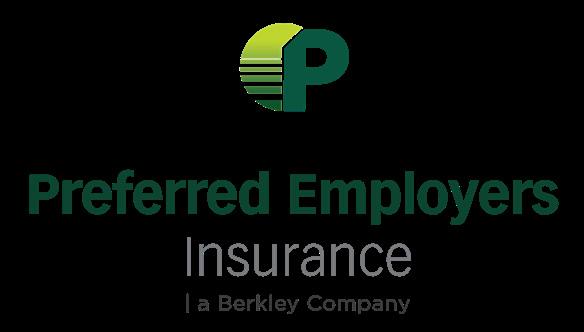
In partnership with
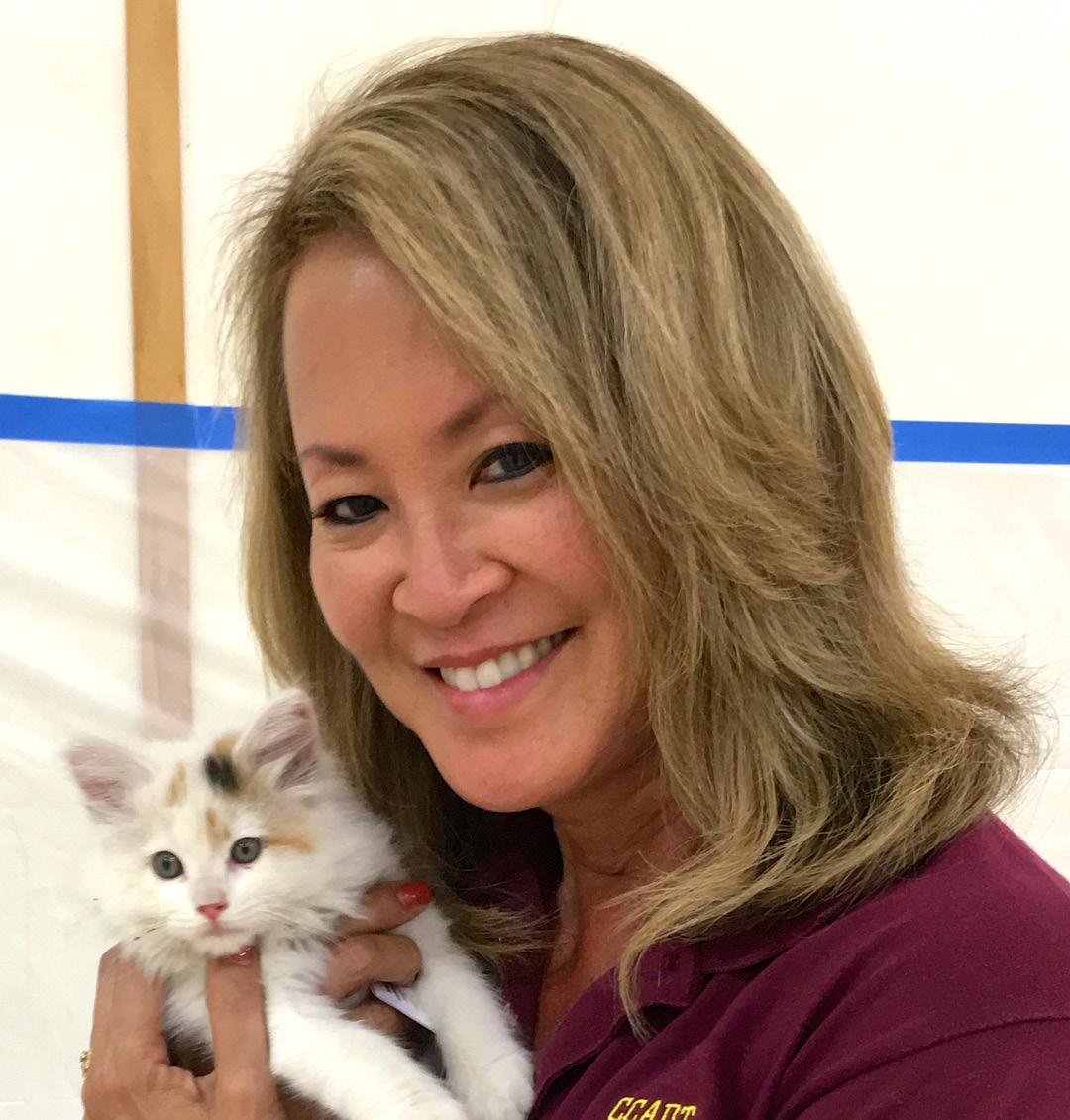
The CVMA annually honors individuals who exemplify the very best of the veterinary profession in California. This year, the CVMA recognized Naomi Tobias with the 2024 Meritorious Service Award, which honors service on behalf of animals, the veterinary profession, and people who celebrate and promote the human-animal bond in California.
Naomi is the founder of the Central California Animal Disaster Response Team (CCADT), a 501(c)(3) non-profit organization dedicated to assisting emergency response agencies with animal evacuation, emergency sheltering, search and rescue, and animal reunification during small- or large-scale incidents. Established in 2011, CCADT has responded or provided mutual aid to over 40 emergencies across the San Joaquin Valley, including wildfires, floods, and home fires.
“Naomi is one of the most dedicated and capable people I have ever worked with,” wrote Dr. Claudia Sonder, President of California Community Animal Response Team (CART) and Napa CART. “She continues to deliver for animals on a large scale and does so with remarkable integrity and collegiality.”
Naomi’s involvement in disaster response started in 2003, when she became a member of the community emergency response team chartered in Fresno. In 2005, during Hurricane Katrina, Naomi realized how many animals are left behind during a disaster, planting the seed for CCADT. “That was very impactful to me,” said Naomi. “There was no one in our Valley who was addressing the pets during disasters.” Soon after, she began presenting on disaster preparedness for animals throughout Fresno and nearby counties.
In 2011, with a wealth of disaster response experience under her belt, Naomi founded CCADT. The organization, at first entirely self-funded by Naomi, initially sought to educate Fresno and surrounding counties on the importance of disaster preparedness. CCADT’s mission transformed in 2013 when a large wildfire hit Mariposa, and its volunteers were called to help. To assist with the influx of injured and displaced animals, the group established its first emergency pet shelter for small animals. This experience opened the doors for CCADT to continue its efforts on a large-scale basis across seven counties. Even today, “it’s a service that’s not really provided anywhere else in the Central Valley,” said Naomi.
By helping evacuate, shelter, and provide medical care to animals during disasters, CCADT preserves the essential connection between humans and their pets. The human-animal bond is especially evident during disasters, as many individuals will risk their lives to save them or refuse to evacuate if they cannot bring their pets.
“We treat animals as family members,” said Naomi. “There are a lot of senior citizens whose pet is the only thing they have. We really feel our services help save animals, yes, but they also help save human lives.”
Naomi views receiving the Meritorious Service Award as recognition to all CCADT volunteers that their service to their community truly matters and is appreciated. In receiving this honor, she hopes to instill the importance of volunteering with your community, especially with animals. “There are so many animals on the streets, our animal shelters are full, and they need responsible volunteers to show up. And some day, one of these volunteers might help save your life and your pets’ lives, too.”
Learn more about supporting or volunteering with the CCADT at ccadt.org.



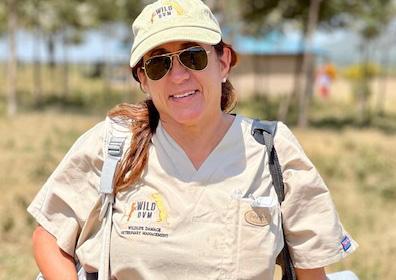
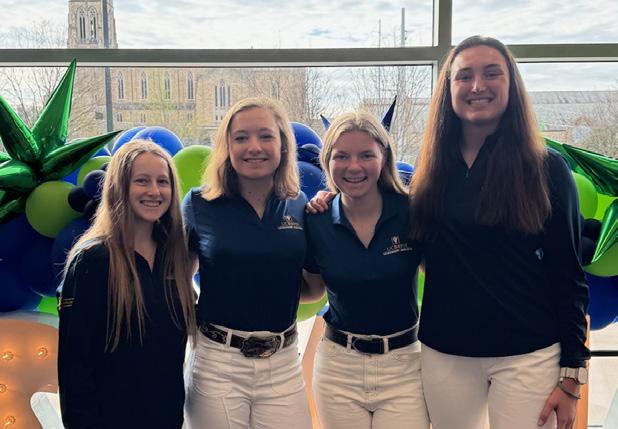

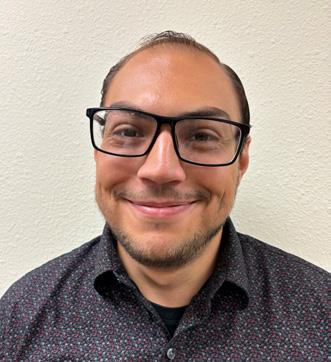
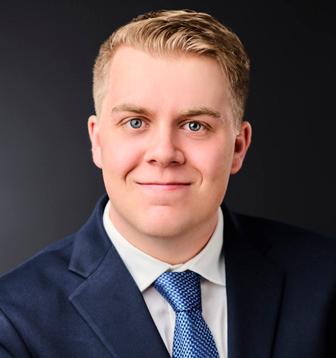
Casey Ajluni, RVT, for passing the Veterinary Technician National Exam! Casey started in the veterinary field 10 years ago as a customer service representative and has been working towards RVT certification for the past four years. In early 2024, she joined the team at Whiskers Animal Dentistry and Oral Surgery, where she can practice her passion for dentistry. Now that she has earned her certification, Casey is excited to seize the opportunity to specialize and to continue learning through CE so she can provide the best care for her patients. Great job, Casey!
Deborah Aparicio, DVM, for her recent trip to Maasai Mara in Kenya to educate people and vaccinate animals against rabies. Dr. Aparicio owns Clayton Valley Pet Hospital and founded the non-profit organization Wild DVM, which strives to end human rabies causalities in Kenya. During their most recent trip to the Lemek Conservancy, the Wild DVM team and four Kenyan veterinarians vaccinated dogs, cats, and donkeys against rabies. The organization End Rabies Now nominated Dr. Aparicio with the World Rabies Day Awards in September in recognition of her rabies eradication efforts. Thank you, Dr. Aparicio, for your selfless efforts in bringing rabies education and prevention to all corners of the globe.
Haley Konoval and Morgan Lunn, two second-year veterinary students at UC Davis, for their hard work in organizing the 2025 SAVMA Symposium! Taking place in March, the SAVMA Symposium will be hosted by UC Davis for the first time in a decade. As the general managers of the event, Haley and Morgan have been coordinating a dedicated team of veterinary students to curate lectures, wet labs, day trips, and social events for veterinary students and industry professionals across the nation. Congratulations to Haley, Morgan, and the veterinary students who have committed significant time and efforts to putting on the symposium. We wish you a successful and fun event!
Kim Conway, DVM, MPVM, for becoming a diplomate of the American College of Veterinary Preventive Medicine (ACVPM). Dr. Conway, the One Health Lead for the California Department of Public Health’s Center for Environmental Health, spent five months studying for the exam, which covers infectious and parasitic diseases, food protection, public health administration and education, epidemiology and biostatistics, and environmental health and toxicology. She pursued the ACVPM certification so that she can better serve California as a subject matter expert in the One Health challenges impacting our state. Congratulations, Dr. Conway, on earning this prestigious certification!
Veterinary Insurance Services Company (VISC), for adding two new staff members, Alex Douglass and Tyler Becco! Both Alex and Tyler and joining VISC as insurance account assistants, helping ensure smooth operations, enhance efficiency, and allow VISC's sales executives, producers, and account managers to focus on their primary responsibilities. Alex comes to VISC with years of customer service experience under his belt, while Tyler has worked in the insurance industry, including as a personal lines producer and life insurance agent. Welcome to the VISC team, Alex and Tyler!
Start the year off right and give yourself a pat on the back! The CVMA likes to spotlight the many accomplishments of our members and their practices, whether a professional development or a personal milestone. Don’t be shy! Please send in your good news and a photo to Taryn DeOilers, the CVMA’s Director of Communications, at tdeoilers@cvma.net to be considered.
By Jeff Boehm, DVM, ACAW
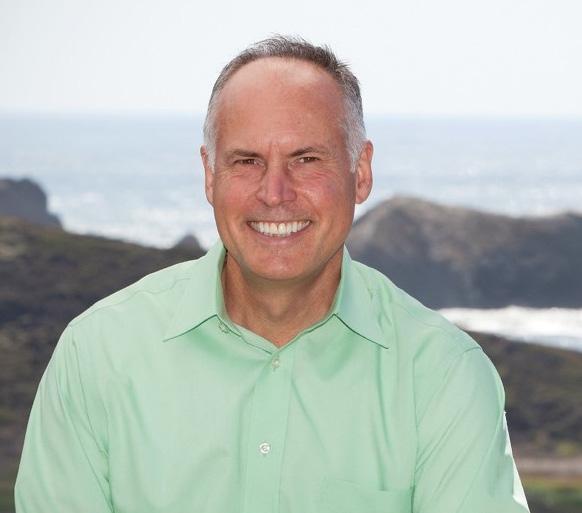
Ijoke that applying to veterinary school makes me think of trick or treating. I was the kid in the oversized white doctor coat with the stethoscope around my neck, knocking on the door of UC Davis while the admissions team scurried about inside, turning off the lights, pretending not to be home. For three years, I applied, to no avail. Four years after admission, I was elected by my classmates to offer a commencement speech.
Unlikely was my career launch, and atypical has my career been.
I grew up among oak woods and rolling hills on the San Francisco Bay. I was outside much more than in, and wild places were my haunts. I wanted to be a veterinarian from the time I was in elementary school. My parents would later tell me that I went from wanting to be an animal to wanting to help them. My interests led me to part-time work during high school in small animal clinics, and my academic pursuits led me to UC San Diego for my undergraduate degree. While I loved wildlife, I saw my future in small animal practice.
It was on summer break when a friend told me about a volunteer opportunity at the California Marine Mammal Center (now, The Marine Mammal Center). With one volunteer shift, my career trajectory was sharply bent. Witnessing veterinarians working with seals and sea lions thrilled me. The notion that one could build a career in such a field lit a fire within me that has, well, never been extinguished.
After earning my undergraduate degree, my three years spent “trick or treating” allowed me to mature a bit while working at Sea World in San Diego. There, I gained vast experience in husbandry, animal training, public presentations, and more. Working as a sea lion trainer was one the most thrilling and exceptional jobs I’ve had.
In veterinary school, I pursued every networking, volunteer, and part-time work experience with wildlife that I could find. This included work at UC Davis’ California National Primate Research Center and California Raptor Center, leading the Avian/Exotics Club, and externing at the Los Angeles Zoo and the San Diego Zoo. A classmate nicknamed me “Glaze” because I was spread so thin.
Entering my fourth year, I pivoted to applying for small animal internships. I reasoned that grounding myself in a more established discipline of veterinary practice would set me up well for the field of wildlife medicine, where so much was still evolving. I spent my first year out of school in an internship at a 24-veterinarian small animal practice in Los Angeles. Its location allowed me to spend days off volunteering at the zoo.
What’s the saying? “Good luck is where preparedness meets opportunity”? A consistency in my career has been the opening of doors at opportune times. As my internship ended, I filled a temporary clinical position at the Los Angeles Zoo, and a year later a friend and mentor recommended me for a veterinary role at Chicago’s Shedd Aquarium.
“Unlikely was my career launch, and atypical has my career been.”
I stepped into work at Shedd Aquarium with both feet in clinical medicine and stepped away 16 years later having become a nonprofit administrator. Along the way, I was part of building the marine mammal collection, establishing the veterinary program, and developing conservation partnerships that took me to Southeast Asia, the Caribbean, and the Arctic. Unwittingly, as I sat at the leadership table over the years, I was being groomed to run a conservation nonprofit by witnessing the work of my education, finance, marketing, facility, and development colleagues.
That aforementioned sharp bend in my career arc became a full circle in 2008, when I seized the chance to return to the Bay Area and run The Marine Mammal Center. Sixteen years later, I have stepped into an external relations role, telling the stories of our ocean conservation organization to influence policy and legislation and bring public funding to our work. The Center is a throughline from individual patient care and welfare all the way to ocean sustainability. What we learn about harmful algal blooms, cancer, and climate change puts us on the front lines of ocean surveillance.
I could not have begun to conceive all that veterinary medicine would allow me to do when I was that nature-loving kid exploring the Bay shoreline. A more fulfilling, timely, and environmentally relevant career, I cannot imagine.


By Stephen Marmaduke, Wilke Fleury LLP
Telemedicine has been rapidly expanding in the healthcare fields, including veterinary medicine. Because telemedicine can provide a costeffective method of delivering care as well as the opportunity to provide treatment to underserved areas, its expansion is likely to continue. In adopting Assembly Bill 1399 (AB 1399), which became effective on January 1, 2024, California became the sixth state to permit the VeterinarianClient-Patient Relationship (VCPR) to be established by electronic communications. Although telemedicine may be effective and efficient in certain circumstances, it should not be viewed as a shortcut and, indeed, the fundamentals of the VCPR remain unchanged whether it is established in-person or via telemedicine.
The practitioner utilizing telemedicine is held to the same standard of care that is expected in a traditional clinical setting and has the added burden of meeting the scope and standards of telemedicine required by AB 1399.
For clarity, telemedicine was permissible in the practice of veterinary medicine prior to AB 1399 in limited circumstances. Prior to 2024, once a VCPR was established—which required either examining the animal in person or making a medically appropriate and timely visit to the premises where the animal was kept—a veterinarian could continue to manage a condition remotely via telemedicine. Further, veterinarians could use telemedicine to provide emergency advice and direction to an animal owner while an animal was waiting to be seen.
Utilizing telemedicine to establish a VCPR is not simply connecting on a Zoom call. With AB 1399, California has adopted mandatory requirements relating to the technology deployed, mandatory consumer disclosures, the client’s consent, limitations regarding the scope of practice, and guardrails to protect against the corporate practice of veterinary medicine.
A prerequisite to a telemedicine visit is that the technology, method, and equipment used by both the veterinarian and the client must be adequate to allow for a meaningful two-way interaction, and both the veterinarian and the client must be proficient with the technology. Further, the transmission must be a “synchronous audio-video communication” that protects the privacy of the patient and the client. An audio-only communication is not sufficient.
The veterinarian must not only be able to see and observe the animal but must also be able to determine whether a virtual appointment is an appropriate method for delivering medical advice and quality care consistent with prevailing standards of veterinary medical practice. Prior to the visit, the veterinarian must provide the client with their name, contact information, and license number. The veterinarian must also obtain alternative means of contacting the client if the electronic transmission is interrupted.
Before delivering veterinary medicine via telemedicine, the veterinarian must inform the client of the potential limitations of telemedicine and obtain the client’s consent and acknowledgment that (i) the same standards of care apply to the veterinarian regardless of the appointment not occurring in-person, (ii) the client has the right to request an in-person appointment at any time, and (iii) the client has been advised on how to receive follow-up care if needed or in the event of a failure of technology. The animal also must be physically located at the time of examination in California; it is not sufficient for the owner to have a California address, or for the animal to reside in California most of the time. Finally, the veterinarian must be familiar with available medical resources, including emergency resources where the patient is located and be able to provide the client with a list of nearby veterinarians, as well as obtain a medical history of the patient by way of medical records, if they are available.
Even though a VCPR may now be established via telemedicine, there remain limitations regarding the veterinarian’s ability to prescribe drugs. A veterinarian who established a VCPR though telemedicine is limited to prescribing drugs for a period of not more than six months from the date of the virtual visit or the date of the prescription. Antimicrobial drugs may not be prescribed for more than 14 days of treatment and a refill shall not be issued unless there has been an in-person examination. A veterinarian shall not prescribe via telemedicine any
“The veterinarian must not only be able to see and observe the animal but must also be able to determine whether a virtual appointment is an appropriate method for delivering medical advice and quality care consistent with prevailing standards of veterinary medical practice.”
drug or medication for use on a horse engaged in racing or training at a facility under the jurisdiction of the California Horse Racing Board. The U.S. Food and Drug Administration has made it clear that a VCPR cannot be established solely through telemedicine, a prescription through telemedicine is limited to label indications, and off-label prescriptions are not permitted. Prescription of all controlled substances via telemedicine is prohibited.
Most significantly, Business and Professions Code section 4826.6(g)(i) states: “The same standards of care apply to veterinary medicine services via telemedicine and inperson veterinary medical services.” This is a high standard. The veterinarian practicing telemedicine, who is deprived of the full benefit of touch, smell, and arguably sound is held to the same standard as a veterinarian who conducted an in-person examination with the benefit of those diagnostic aids. There is no forgiveness for an oversight that may be attributed by the limitations of telemedicine appointments.
The importance of documentation cannot be understated. A veterinarian practicing telemedicine must document
(i) the establishment of the VCPR for each specific medical condition being treated; (ii) satisfaction of disclosure and consent requirements; and (iii) reasonable proof that the patient is located in California at the time of the appointment. To assist in meeting these requirements, it may be helpful to develop a checklist that is provided to the client prior to the telemedicine visit, then signed and returned prior to the appointment and retained in addition to the patient medical record. Telemedicine “visits” could be recorded with the client’s express approval. Artificial intelligence software may be useful to document virtual visits, but veterinarians must ensure that any platform that facilitates telemedicine appointment does not retain client or patient information without client consent.
Overwhelmed? Clearly, telemedicine is not a shortcut version of veterinary practice. It may be a valuable practice tool, however, and thus it is imperative that veterinarians familiarize themselves with the relevant provisions of the Veterinary Medicine Practice Act addressing telemedicine (Business and Professions Code Section 4826.6). The CVMA has promulgated a policy on telemedicine that is available on its website, and CVMA Director of Regulatory Affairs Dr. Grant Miller also authored a helpful article entitled “Veterinary Telemedicine Expansion in California” that appeared in the January/ February 2024 edition of California Veterinarian and is available on the CVMA’s website. Additionally, the California Veterinary Medical Board’s website includes helpful FAQs on telemedicine. Once the basic mandates of veterinary telemedicine are understood, the practice of veterinary medicine is virtually unchanged—establish a VCPR when required and document, document, document!
Stephen Marmaduke is of counsel at the Sacramento law firm of Wilke Fleury, LLP. His experience includes legal issues related to veterinary practices, employment law, and general business matters.
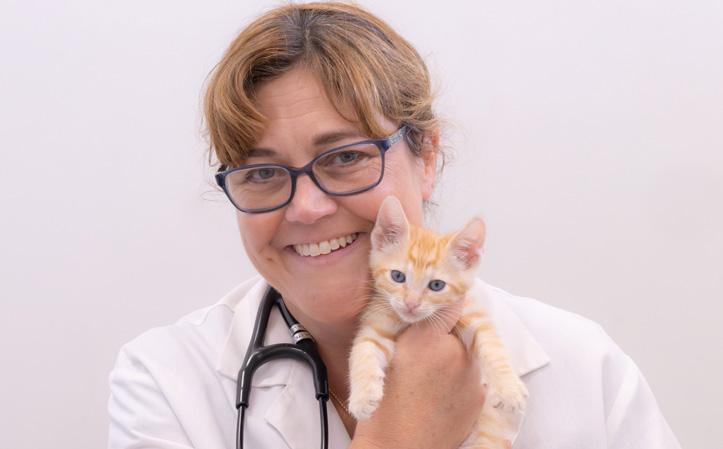
Emily McCobb, DVM, MS, DACVAA has been named the inaugural PetSmart Charities Endowed Chair in Accessible Veterinary Care at the University of California, Davis, School of Veterinary Medicine. The role has been permanently funded by a $6 million grant, the single most sizeable grant in PetSmart Charities’ 30-year history.
More than 60% of American homes include pets and consider them important members of the family. But not all pet owners have sufficient means to provide veterinary care for their animal companions, resulting in many pets not receiving necessary care or entering the shelter system instead of staying in loving homes. These tragic decisions can significantly impact families and communities.
Dr. McCobb’s appointment signals the school’s focus on ensuring pets and their families can find the health care they need by inspiring innovation across the entire veterinary system.
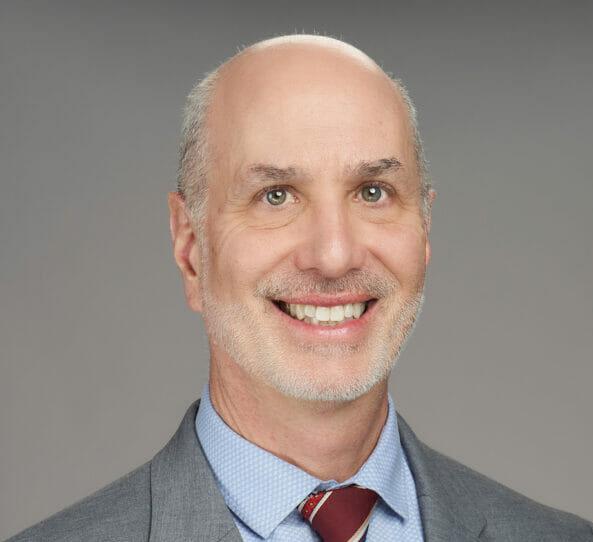
John Tegzes, MA, VMD, Dipl. ABVT, FNAP has been named Dean of Western University of Health Sciences’ College of Veterinary Medicine, with the designation fully effective as of this past July 15. Prior to this promotion, Dr. Tegzes had served as Interim Dean since 2022.
"Dr. Tegzes brings a wealth of experience and expertise that we believe will greatly benefit our organization during this critical period," said WesternU Provost Paula
Crone, DO, during the announcement on July 3. "He is highly accomplished with an extensive career that spans over three decades and encompasses clinical practice, academia, research, and leadership roles."
Dr. Tegzes is excited about the work ahead. “I’m so passionate about it. I love this college,” he said.
Dr. Tegzes began his tenure at WesternU in 2003 as an associate professor of toxicology for the university’s College of Veterinary Medicine. He has also taught toxicology for the College of Osteopathic Medicine of the Pacific and WesternU’s College of Pharmacy. He is a prolific researcher and author whose research interests include interprofessional education, toxicology, and animal health.
Dr. Tegzes received his VMD degree from the University of Pennsylvania. He
UC Davis’ Access to Care program has helped advance new models of care in the veterinary profession, and this new position allows Dr. McCobb to further develop those models and provide leadership nationally.
Dr. McCobb comes to UC Davis from Tufts University's Cummings School of Veterinary Medicine, where she served as a clinical associate professor of anesthesiology and director of the school's shelter medicine program. Her experiences with community programs raised her own awareness around the plight of pets and families making difficult decisions when affordable care was out of reach.
has served on advisory committees for the American Association of Veterinary Medical Colleges (AAVMC), Association of Medical Educators of Europe (AMEE), and Veterinary Education Worldwide (ViEW). Dr. Tegzes is a Fellow of the National Academies of Practice. He serves on the ASPIRE Executive Board of the Association of Medical Educators of Europe (AMEE). He is a diplomate of the American Board of Veterinary Toxicology and holds veterinary licenses in both California and Oregon.
An avid champion of Interprofessional Education (IPE), a significant portion of Dr. Tegzes' career has focused on developing and advocating for IPE at WesternU. In that regard, Dr. Tegzes has held leadership positions in numerous organizations promoting IPE, including the AAVMC and the Interprofessional Education Collaborative (IPEC).
Dr. Tegzes is only the third dean in the 25year history of WesternU’s CVM, following founding Dean Shirley Johnston and Dr. Phillip Nelson.

The CVMA offers the Summer Work Experience Program (SWEP) each year for students at the UC Davis School of Veterinary Medicine and Western University of Health Sciences College of Veterinary Medicine. Through SWEP, second- and third-year students are employed over the summer by veterinary practices across California. This program gives students the chance to gain crucial hands-on experience while earning money, thus reducing their student debt. SWEP is also advantageous to participating veterinary practices, who benefit by assisting students in their education and by connecting with potential future colleagues.
PRACTICES: How Does SWEP Work?
START PLANNING FOR NEXT SUMMER!
Students are already beginning to seek out summer internship and work opportunities. Don’t wait—start planning now!
Through SWEP, students will:
• Attain valuable work experience in a private practice setting.
• Contribute to a practice’s efforts to improve animal health.
• Earn while learning, simultaneously decreasing student debt. Veterinary practices will:
• Develop relationships with potential future associates.
• Provide a student with valuable real-world experience.
• Play an active part in reducing student debt load.
• Add an enthusiastic employee to staff.
Veterinarians throughout California will receive an email about SWEP this November with a link to a sign-up form. Interested practices should review, complete, and return the form to the CVMA by February 15, 2025.
Eligible student members will be informed at the end of February when the employment opportunities have been compiled and posted. This information will also be available in the student area at cvma.net. Students may contact veterinary practices directly to apply for a position.
Practices Can Sign up to Participate in 2025 SWEP Now!
If you have any questions or have not received an email about SWEP by the end of November, please email the CVMA’s Membership and Student Services Manager Laura Phillips at lphillips@cvma.net or call 800.655.2862.

The CVMA Finance Committee is presented with an annual draft budget and recommends a final draft to the CVMA Board of Governors each year. The Board reviews the final draft, makes necessary updates, and approves the budget in accordance with the CVMA’s objective of maintaining fiscal responsibility.
As part of its review, the Board assesses both membership numbers and overall sources of revenue. Total membership as of June 30, 2024 was 7,170 members. At the fiscal year-end, 35% of the CVMA’s revenue was derived from membership dues, 10% from continuing education seminars, and 55% from other income. The revenue from continuing education is lower than in previous years because the 2024 Pacific Veterinary Conference did not fall within the 2023–2024 fiscal year. Non-dues revenue assists in supplementing the many programs, member benefits, conferences, seminars, projects, and other items that the CVMA offers its membership.
At the March 2024 Board meeting, a motion was passed to increase the overall spend for active members to $350, with an allocation of $40 of that amount to the PAC. This modification allows us to maintain a robust PAC fund while concurrently safeguarding our dues revenue.
Members can receive a copy of the CVMA’s current financial report by calling the CVMA at 916.649.0599.
Budgeted revenue for the 2024–25 fiscal year is $5,591,333 and budgeted expense is $5,197,179. This is an increase resulting from having two PacVet conferences within the same fiscal year (July 2024 in San Francisco and June 2025 in Long Beach).
We continue to adapt most of our continuing education seminars to include a “hybrid” component that allows attendees to attend virtually, resulting in more profit for the CVMA.
The CVMA’s investments are overseen by the CVMA Investment Committee and approved by the Board. The CVMA’s investment firm administers the portfolio’s asset allocation and makes suggestions based on periodic reviews of the asset performance and goals set forth by the CVMA Investment Policy.
The CVMA maintains reserves total of approximately 155% of the current budget expenditures. This amount exceeds the Board’s goal of maintaining 50% of the current annual budget in reserves. The Board did approve reserves to be used to repair the CVMA’s roof, upgrade IT, and hire a consultant for the replacement of MemberMax, the current Association Management System, to provide better service to the membership.
The 2025–2026 budget will be reviewed in January 2025 and should be adopted in March 2025.

TRUSTEDVETERINARYBROKERS- ServingCAVeterinariansfor30+Years.
VENTURACOUNTY,COAST: LocatedbetweenLA&SantaBarbara. Diversehousingoptions,strongeconomic baseandmulti-culturaldemographics. 3,100sq.ft.free-standingfacilityonabusy majorthoroughfare.2024projectedgrossof about$1,100,000. NEWLISTING! PRACTICEPRICE:$790,000. REALESTATEAVAILABLEFORSALE.
GREATERSACRAMENTO, closetotheCity: Thissuburbanareaoffersatranquilescape fromthehustle&bustleofcitylife.This wonderfulcityoffersablendofsmall-town charm,excellentcuisine&diverseeconomic sectors.Locatedinashoppingplazawitha veryfavorableleaserate.2,200sq.ft.facility offers2examrooms&iswellequipped includingultrasound&digitalX-Ray.2024 projectedGross~$2Million.Wellmanaged, excellentstaff.Requiresskilled,personable ownerwithadequateliquidity. EXCEPTIONALLYprofitablepractice! CALLFORDETAILS.
EASTOFSACRAMENTO,nearPlacerville: Stepintoanexceptionallyattractive,thriving ~4,000sq.ft.veterinaryfacility.Thiswellmanaged,fullyequipped,turn-key,small animalpracticeoffersafavorablelease.The hospital’sexcellentlocationoffers significantadvantagesandopportunityof addingemergencyservices.2024Projected GROSS:~$1.3Million. Askingpricerecentlyreducedby$100,000. CallforPricing.
ORANGECOUNTY-IRVINE:Adiversified economyoverflowingwithexceptionaljobs,a widevarietyofhousing&excellent educationalsystem.Establishedin2013, leasedfacilityconsistsof~1,400sq.ft.with2 examrooms.EquipmentincludesDRX-Ray& IDEXXlabequipment.Opportunitytorelocate withinshoppingcenter,withtermsTBD. PRACTICEPRICEONLY:$150,000.
LocatedintheSierraFoothills,theareaoffersa highqualityoflifewithitsblendofsmall-town charm,modernamenities.Well-established, leaseholdfacilitywithanenormouspotential forgrowthwithanew,energeticowner.2024 ProjectedGross:~$980,000.Equipment includesnewerdigitalX-Ray. NEWLISTING!
PRACTICEPRICEONLY:$550,000.
MIDCENTRALVALLEY:
1hourtoSacramento,SanJose&Oakland,on the5corridor.Practiceislocatedinagrowing citywithsmall-towncharmandbig-city development.Situatedinahigh-visibility locationintheheartofdowntown!Well, designed,efficientfacilitywithextrastorage. CurrentlyoperatedDVMonly4daysperweek. Emergenciesreferredabout20minutesaway. Owner’ssurgeriesareextremelylimited. MinimalCompetition.2024projectedgross: ~$826,000.
PRACTICEPRICE:$535,000.
REALESTATEPRICE:$530,000.
SANDIEGO,EASTCOUNTY:
Withineasyreachofnearbycities& attractionslikegreatrestaurants,Padre baseball,andSeaWorld.Well-established practicelocatedinanactive,popular shoppingcenter.Practiceneedsanew energeticDVM.~1,400sq.ft.leasedfacility with2examrooms,digitalX-ray&new ultrasound.
RECENTPRICEREDUCTION!
PRACTICEPRICEONLY:$350,000.
VENTURACOUNTY: Locatedinathriving valleycommunity.Thiscityisashortdrive fromthebeach&equidistanttoLA&Santa Barbara.Realestateincludesaseparate officefacility&privateparking.Friendly clients.LimitedDVMhours(PXclosesat5 PM)&noweekendoremergencyservices provided.Limitedcompetitionfor population.2024projectedgross:~$927,000.
PRACTICEPRICE:$610,000.
REALESTATEPRICE:$635,000.
SONOMACOUNTY,COAST:
Wanttoliveandworkinanexhilarating environment?!Theexcitingharbor,fresh seafood,gourmetrestaurants&awarm, close-knitcommunityarejustafewperksof thistown.Smaller,efficient,leaseholdfacility isoperatedwithlimitedofficehours.2023 Gross$919,000. NEWLISTING! PRACTICEPRICE:$780,000.
SIERRAFOOTHILLSREGION:
OnlyanhourtoSequoiaNationalPark. Exceptional,~7,100sq.ft.free-standing facilityincludes3examrooms,boarding wings,&muchmore.Well-equipped,busy soloDVM&qualitystaff.Ownerwillingto remainpart-time,ifdesired.Minimal competitionforpopulationdensity.Limited DVMhours&servicesanduniquelylarge facilityoffersignificantgrowthpotential. Optionfor24-hoururgentcare/emergency practice.2024PROJGROSS:~$1,500,000. PRACTICEPRICE:$895,000.
REALESTATEAVAILABLEFORSALE.
SONOMACOUNTY: Lessthan1hourto Oakland&SF.SoloDVMpractice.Owner hasbeenexperiencinghealthissues.Wellmaintained,free-standinghospital.~2,300 sq.ft.facility.Excellentlocationonmajor, heavilytraffickedroad.2023Gross ~$565,000producedwithlimitedhours& surgeries.
PRACTICEPRICEONLY:$380,000. REALESTATEPRICE:$810,000.
SANDIEGOCOUNTY:
Rarehigh-grossing,multiDVM,turn-key practice.~4,000+sq.ft.facilitywithvery favorableleaserate.Hospitalboastsstateof-the-artequipment&highlytrainedstaff. Sellerisavailabletoremainlong-term.Ifyou areaqualifiedbuyer,whylosethisonetothe corporates?
2024PROJECTEDGROSS:~$3.4+Million CALLFORDETAILS.


As the holiday season approaches, we’re often faced with a host of options and choices as to how we will spend our time and our money. Many of us anticipate endless preparations or feel obligated to meet unrealistic expectations for gift giving. Or we may try to avoid disappointing anyone by visiting everyone in a short amount of time. Challenging circumstances like an economic downturn, job loss, or insufficient time off work to allow travel can further contribute to the stress.
There are several ways to get back to basics and the simple things to make ourselves happier during the upcoming holiday season. Consider the following tips:
Be aware of your needs Many of us unquestionably follow the traditions we always have during the holidays, regardless of what is going on in our lives. It is okay to say no and to put you and your family first. You can decline that invitation if you want to!
Consider opting out of the usual "fun celebrations" and instead use the holidays as a time for reflection. Perhaps your stress has been triggered by a divorce, a career disappointment, or a health problem. You may benefit from some form of spiritual nourishment, like reading a few meaningful books or visiting a fitness spa.
Realize that you don't have to do everything yourself. Stop waiting for things or people to change; take charge and delegate tasks to family members or friends, and ask for help when needed.
Cook the main course and ask the guests to bring the trimmings. Are you usually tasked with preparing the holiday dinner for a large gathering of family and friends? People generally want to help and contribute. Ask each person to bring one dish and share the load!
Limit your spending and draw names. Agree to a protocol where each person buys and receives one gift. The element of surprise—wondering who drew your
name—can make gift giving more fun. It's important, however, that everyone plays by the rules. If you have agreed to a limit on the cost of the gifts, don't be tempted to spend more!
Don't overindulge in food and drink. Holiday parties can be especially difficult for those recovering from substance abuse or an eating disorder. If overindulgence is a concern and you think the temptation might be too great, politely decline invitations to parties and celebrate in a way that is suitable for you.
Help others. Whether you serve at a soup kitchen, reach out to an elderly relative, or help at a local charitable organization, assisting others can help people keep their minds off their own troubles and provide a sense of purpose.
Recognize when holiday rituals become a burden, not a pleasure. Realize that times
have changed and a past ritual may no longer fit your family’s wants or needs. Avoid forcing something that has become tedious or timeworn, and be open to trying new traditions that you and your family can enjoy.
Try to develop a positive attitude toward the holiday season. This year, make an effort to see the magic that is part of the holiday celebrations. Regardless of your religious background, you can enjoy the music, the lights, and the decorations in the store windows and along the street; focus on the positives and try not to dwell on the challenges.
Be realistic. Life isn't perfect. Seldom are holiday celebrations like the glossy photographs we see in magazines this time of year. Focusing on impossible expectations usually results in disappointment and unhappiness, so accept what is and let go of impractical expectations.
Take patient care and your practice to new heights when you choose the Vcheck V200, the industry’s original and only quantitative, in-clinic diagnostic analyzer to complement your existing diagnostics suite. Featuring highly sensitive nanotechnology, 17 biomarker tests and industry exclusives, the Vcheck delivers results in minutes.
If we can't have a perfect holiday season, we can still have many happy moments. Let these suggestions help you create a very special gift for yourself—your best holiday season ever!
© TELUS Health 2024
TELUS Health Wellbeing Experts

SPONSORED BY:


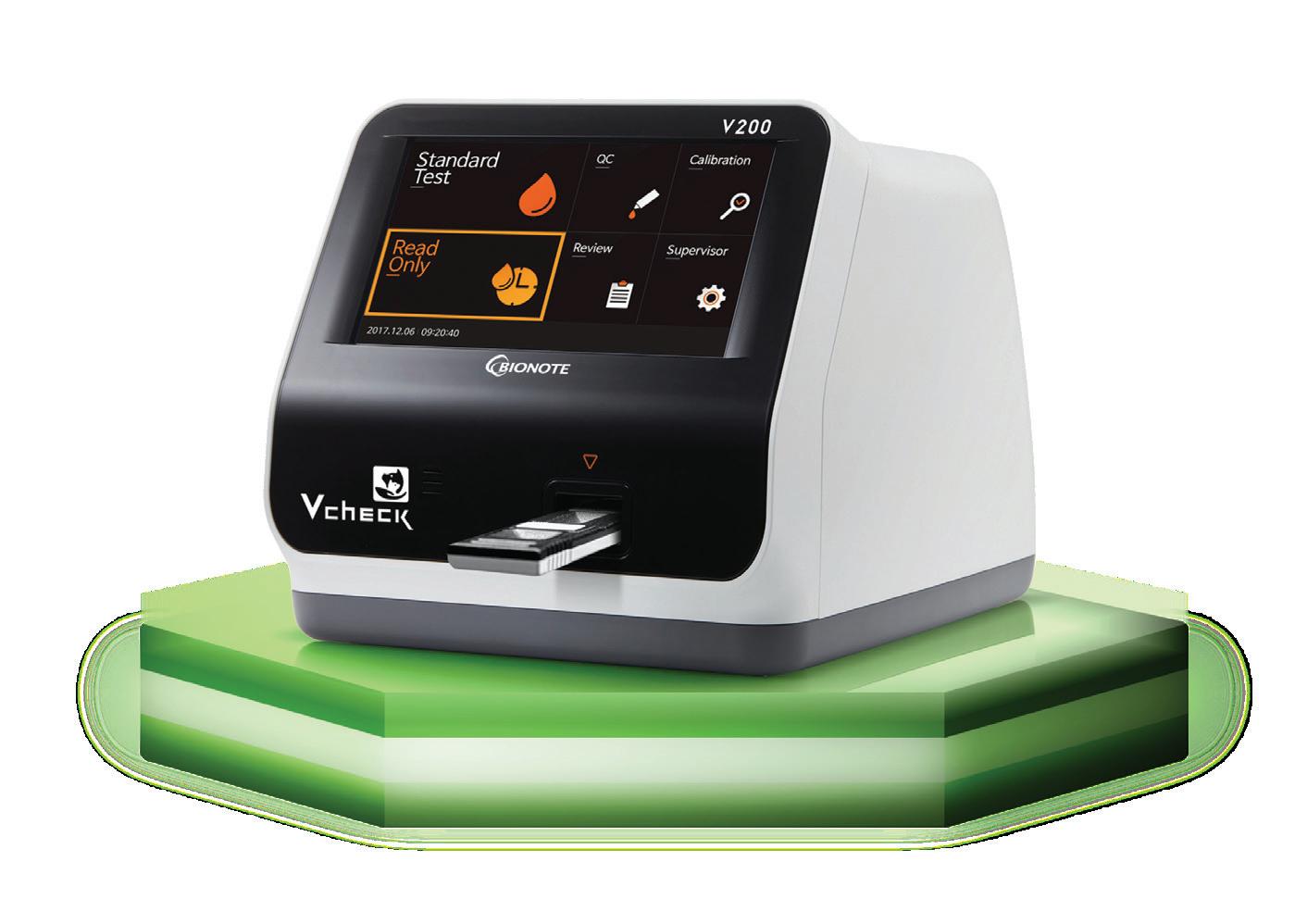
Bionote’s Vcheck V200 truly raises the bar for veterinary care. bionote.com/v200

The CVMA extends our sympathy to the friends and family of those remembered.
Dr. Harry Blanchard, a CVMA Life Member, passed away in 2024. Dr. Blanchard graduated from Kansas State University with a DVM degree in 1954. Originally serving as a Captain in the Air Force Reserves, he took a veterinary post first in Dinuba and then built his own practice in San Jose. Dr. Blanchard helped establish emergency practices across the Bay Area.
Dr. Kari Moore, a long-time CVMA member, passed away on April 30, 2024. Dr. Moore obtained her veterinary degree from Texas A&M University in 1994. She completed a residency in small animal emergency and critical care at Tufts University and then became board-certified by the American College of Veterinary Emergency and Critical Care. She held the position of medical director and intern director of VCA Sacramento Veterinary Referral Center from 2007 to 2016, when she resumed a full-time role as the regional medical director for VCA.
Dr. George Thomas, a CVMA Life Member, passed away on May 26, 2024. Dr. Thomas graduated from Texas A&M University with his veterinary degree in 1950. Throughout his career, Dr. Thomas owned Macy & Thomas Veterinary Hospital in Whittier and County Line Animal Hospital in La Habra, California. He served in the Army Air Corps during World War II.
Dr. Paul Wise, a CVMA Life Member, passed away on August 8, 2024, a month short of his 106th birthday. After being drafted and serving in the military, Dr. Wise earned his DVM degree from Colorado State University in 1950. He founded Grand Avenue Pet Hospital in Santa Ana in 1957, which he owned and operated until 1972. Having joined the CVMA in 1960, Dr. Wise served as a CVMA delegate in 2007 as well as the secretary and treasurer of his local North Valley VMA for over 40 years.
In memory of deceased members, the CVMA makes a donation to the California Veterinary Medical Foundation, whose mission statement reads: “Nurturing kindness, education, and well-being for all animals, people, and the environment.”


Simmons has been leading the brokerage and appraisal industry for over 45 years. Whether you are buying, selling or valuing your practice, Simmons ensures you get the best and most comprehensive services. We understand the needs of our clients are unique and dynamic and our experience allows us to assist veterinarians with personalized support in every transaction. We emphasize expert valuations and nationwide marketing reach, and a flat commission rate to provide smooth transitions for both buyers and sellers. Simmons is the trusted partner for those looking to buy, sell or value their practice.
Like us, you have a calling to be a caregiver and a life-long learner and to be a part of something bigger; to be a valued professional, a part of a passionate and focused team, and part of a vibrant community. Terra Linda Veterinary Hospital is a privately owned animal hospital focused on providing exceptional personalized care for pets and their people, and a supportive and collaborative environment for our staff. We understand that our team is our greatest asset and we believe that caring for our team first is the key to our ability to provide great care for our patients and clients. We treat our patients, our clients, and our staff like family. And we are completely dedicated to our family. Terra Linda Veterinary Hospital is located in San Rafael, CA, in the heart of desirable Marin County. Our long, warm Summers and mild Winters are perfect for soaking in those stunning views over the bay and visiting the plethora of nearby attractions such as Muir Woods, the vineyards of Sonoma and Napa Valleys, numerous beaches and national parks and the nearby cities of San Francisco and Berkeley. Practice highlights: AAHA accredited; Spacious, well-equipped exam rooms; Digital radiography; A fully-equipped dental suite; In-house laboratory including Vetscan Imagyst; Ultrasound; Surgical Laser; Dedicated support staff; Visiting Internist and Ultrasonographer. We offer: Competitive Salary: $185,000-225,000; Sign-on Bonus-$60,000; Relocation Assistance stipend; Dedicated, personalized mentorship for early-career Veterinarians; Professional Licensing reimbursement; Professional Association dues; Generous PTO; CE stipend and additional PTO for CE attendance; Health, Dental and Vision insurance benefits; Pet discounts (because your pets are part of our family too). We are seeking a Veterinary Associate who is as passionate, focused and caring as we are. Someone who’s unique strengths and interests will lift us up and enrich our hospital culture. A veterinarian of any experience level who wants to live in a beautiful area, grow with us and love what they do every day. Please visit our website at terralindavet.com and reach out to Sheila@vpveterinaryrecruiters.com if you would like to learn more.
Medical Director – Your Opportunity: Challenge the status quo and reimagine what a private practice can offer its staff and clients. Forge your own path! Managers NOT welcome here! We are looking for a leader who wants to level up their skillset and play an integral part in the growth and success of our practice and its people. No prior directorial experience necessary! Excellent communication skills with strong emotional intelligence. Capable of giving and receiving concise, timely feedback that is both critical and supportive. A solid sense of humor and a stack of confidence. Able to adapt to continual change and growth. We are a highly productive, growth-minded, independent, client-focused companion animal veterinary practice with the team, equipment and resources in place to allow you to thrive. Let’s grow together! Your role is to guide the medical side of the practice. Create and refine medical protocols, pharmacy, equipment purchase decisions, surgical protocols, templates, institute new services. Co-ordinate training/CE with other doctors and support staff, be the advocate for the clinical staff. Work closely with owner (DVM), practice manager, lead CSR/RVT to remain mission-focused, share our vision for the future and drive to exceed our operational and financial goals. Our People (They are everything!) We prioritize and invest in the wellbeing of all of our team members. If you don't look forward to coming into work, what's the point? We have high expectations of our staff, and we excel by providing freedom for staff to make decisions, learn from their mistakes, and an environment where feedback is expected. We provide a positive, motivational, supportive work environment for our staff. We are a family. We encourage continuing education for both professional and personal growth, health and wellbeing. This creates an environment where we are excited to come to work, dedicated to our mission, and set up to succeed. We are a team of
veterinary professionals, who practice with integrity. We maintain honesty and transparency in everything we do and for this, our clients trust and respect us. We have a support staff of exceptionally efficient, fun and capable animal lovers. RVT’s (5), VA's (6), CSR's (6), Inventory manager (1) that allow our doctors to focus on what they love and are good at. Our Practice Manager is the cheerleader of our team. Their primary focus is preventing drama, solving problems and being the biggest supporter of our work family. Our team of Doctors are experienced, collaborative and supportive. We don't take ourselves too seriously, we love what we do, and we are all continually learning from each other. Dr Hayden Webster (Owner) is a 2006 Massey University (New Zealand) grad. His wife, Alicia is a 2008 Western University grad and they have 3 little boys that keep them busy. Dr Elisabeth Klapstein is a 1997 University of Florida grad. Dr Deborah Cousyn is a 1984 UC Davis grad. Dr Jennifer Yee is a 1999 OSU grad. Dr Courtney Starr is a 2022 UC Davis grad. Our Practice: We hold ourselves accountable to the highest standards, exceeding best practice guidelines and providing comprehensive care with excellence. We spend time with our clients to ensure they can make informed decisions. We are busy, productive and have an unmatched local reputation. Generally, we work 8-5:30pm (M-F). First appointment is 8.00 and last appointment is 4.30pm. The hospital is locked up and dark by 5.30pm. No really! Go be with your family/friends/pets! We have 2-hour unscheduled lunch breaks. No really! Take your lunch and/or catch up on records. We don't take walk-ins. Most appointments are 30mins, some routines are 20mins. Our Home: Lockeford is a tight-knit community in the heart of wine, cherry and almond country. We are 40 minutes south of Sacramento and an hour from the Bay Area. Tahoe, Yosemite, Napa and San Francisco are all an easy day trip away! Live in town, commute from the city or buy an orchard or horse property and live the country life. World class hiking, camping, fishing/boating, skiing is on your back doorstep! Bring your skills, passion and bright personality to our corner of sunny northern CA! Compensation and Benefits Package: Pay: $200,000 minimum base (FOR 4 DAY WEEK); Relocation stipend; 4 days per week; No weekend, after hours or emergency work; Health and Life Insurance; 401k with 4% match; Profit Sharing; 5 weeks paid vacation; 2 weeks paid maternity leave; Holiday pay; 3 days paid CE time off; $2500 CE stipend; Uniform allowance; Paid Dues and licenses; Employee Discount. Email admin@mokelumnerivervet.com.
Looking for compassionate, enthusiastic small animal veterinarian to work at our 2-doctor practice in beautiful South Lake Tahoe. General surgery and medicine, with ultrasound, digital radiology, dentistry, in-house labs, Imagys reader, and more. No after-hours emergency. Excellent support staff with a commitment to our clients and patients an absolute must. Flexible hours and workweek, pay based on production, with full-time employment income likely at 200k+. Insurance, CE, IRA, and more. Excellent work/life balance with relaxed non-corporate ownership structure. Future ownership possibilities for the right candidate. Email npowell@bluelakevet.com.
We are a busy and successful small animal clinic with 2 full time veterinarians and looking into hiring 2 motivated full time or part time veterinarians. Our clinic is located in mid Los Angeles (close to beach, Beverly Hills and Century City area), all veterinarians are scheduled for 4 days work only, no Sundays and only 1 Saturday a month, no on call of after hours. Our clinic is fully equipped with 8 exam rooms, digital x-rays and digital dental x-rays, complete in house blood/urine analyzer and 100% paperless. Sign in bonus, health insurance, paid vacation and paid CE dues. Mentorship will be fully provided if indicated. ECFVG and new graduates are welcome. Email info@beverlyrobertsonvet.com.
1. Publication Title: California Veterinarian
2. Publication No. 004-347
Filing date: September 10, 2024
Issue frequency: Bi-monthly
Number of issues published annually: 6
6.Annual subscription price: $50
7.Office of publication: California Veterinary Medical Association (CVMA), 1400 River Park Drive, Suite 100, Sacramento, CA 95815-4505
General business office of publisher: CVMA, 1400 River Park Drive, Suite 100, Sacramento, CA 95815-4505
Full name and address of publisher: Daniel Baxter, CVMA, 1400 River Park Drive, Suite 100, Sacramento, CA 95815-4505.
Full name and address of editor: Taryn DeOilers, CVMA, 1400 River Park Drive, Suite 100, Sacramento, CA 95815-4505.
Full name and address of managing editor: Kristen Calderon, CVMA, 1400 River Park Drive, Suite 100, Sacramento, CA 95815-4505.
Owner: California Veterinary Medical Association, 1400 River Park Drive, Suite 100, Sacramento, CA 95815-4505. Stockholders owning or holding 1 percent or more of the total amount of stock: none.
11 Known bondholders, mortgagees, and other security holders owning or holding 1 percent or more of total amount of bonds, mortgages, or other securities: none.
12 The purpose, function, and nonprofit status of this organization and the exempt status for Federal income tax purposes: has not changed during the preceding 12 months.
13 Publication title: California Veterinarian
14. Issue date for circulation data: July/August 2024.



15. Extent and nature of circulation:
a.Total Number of Copies




